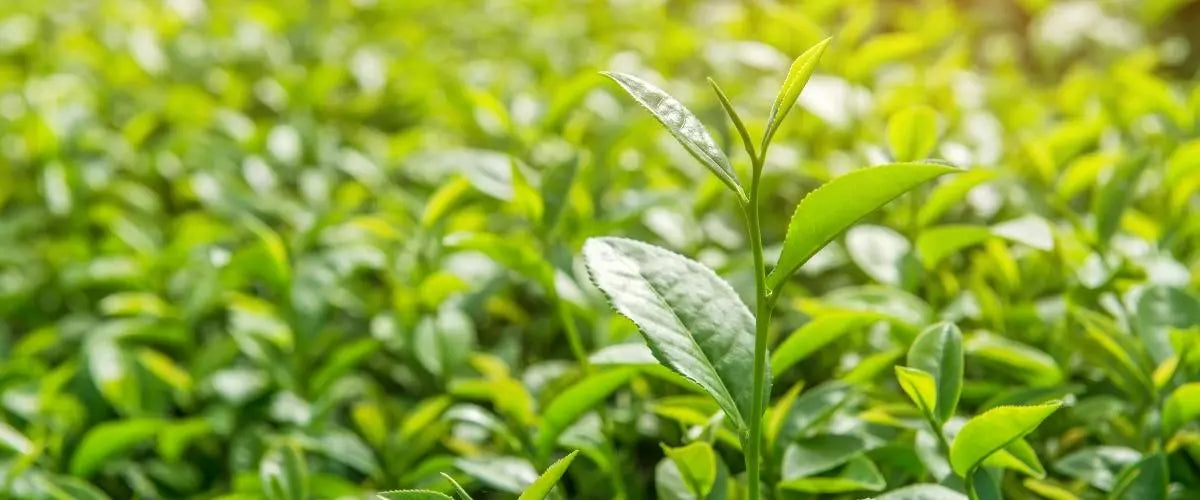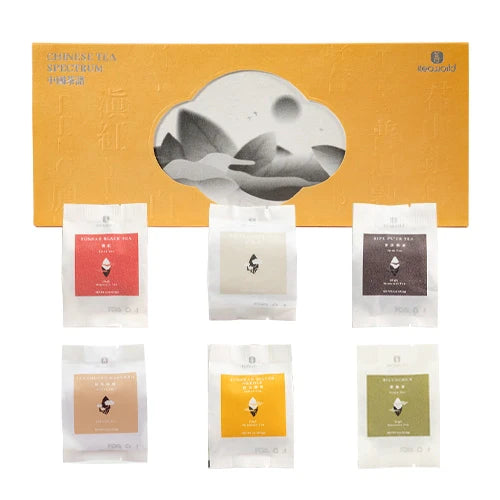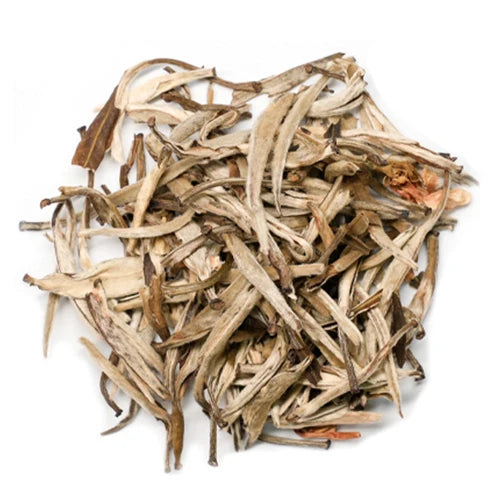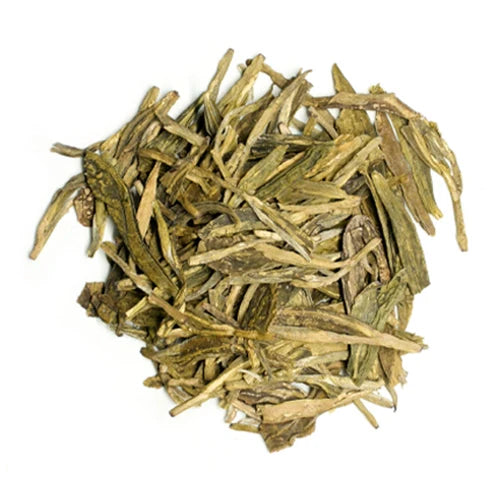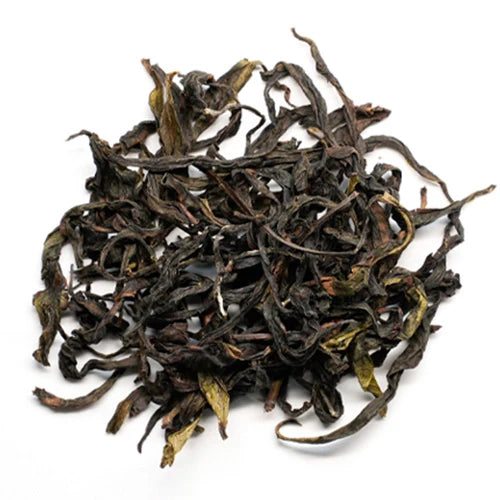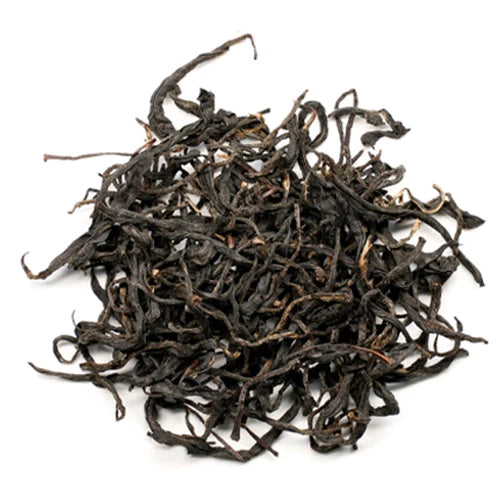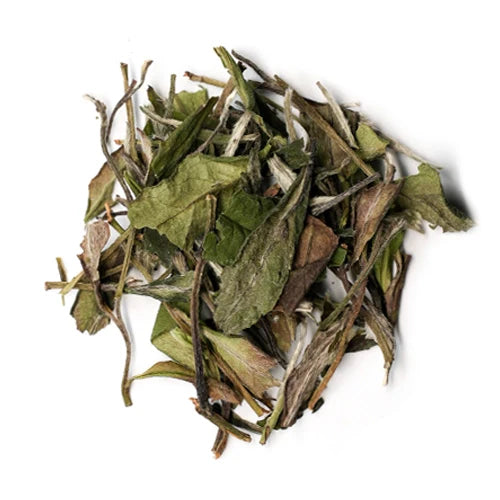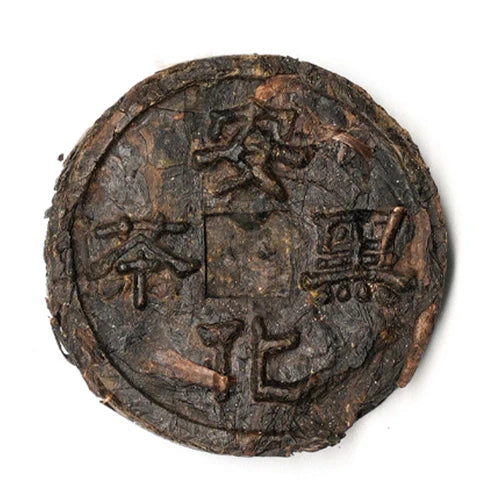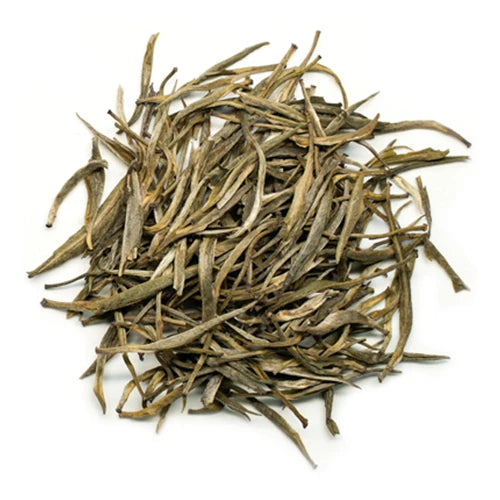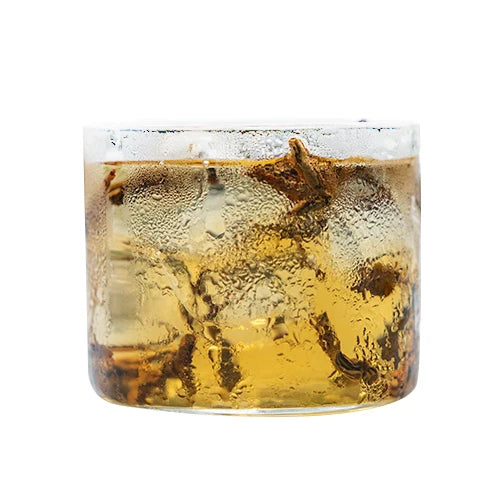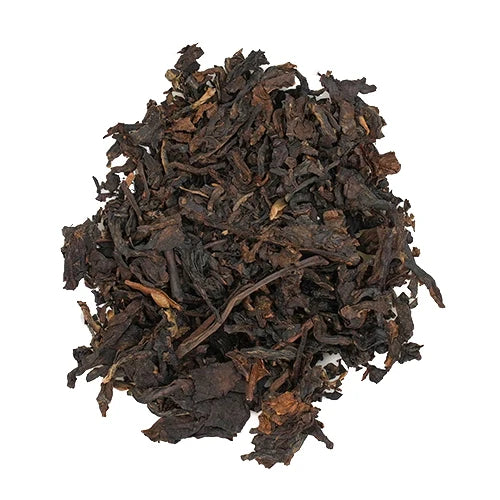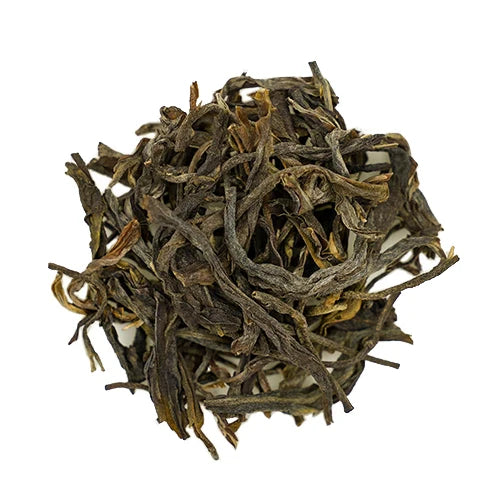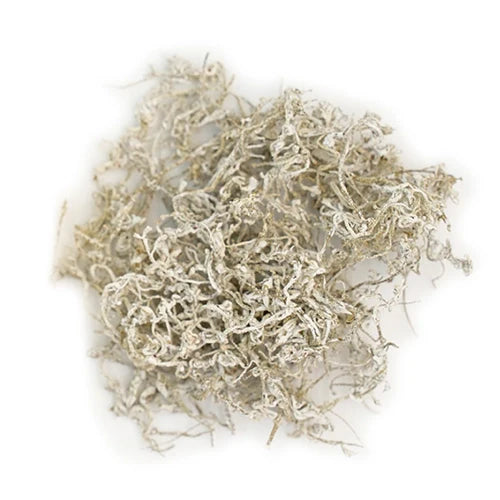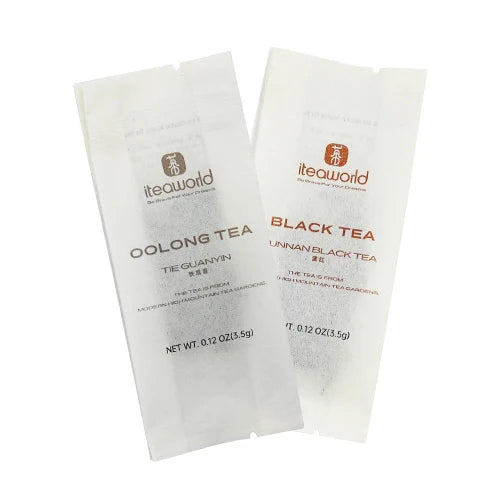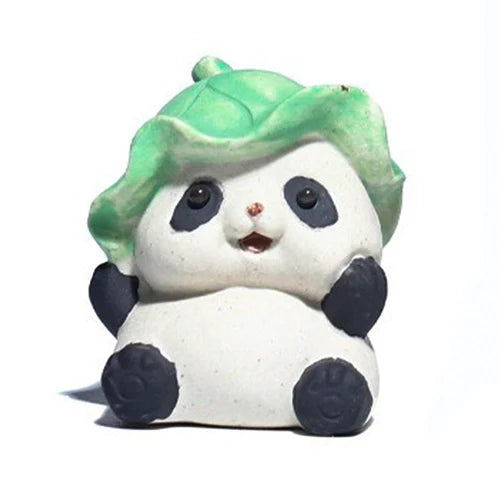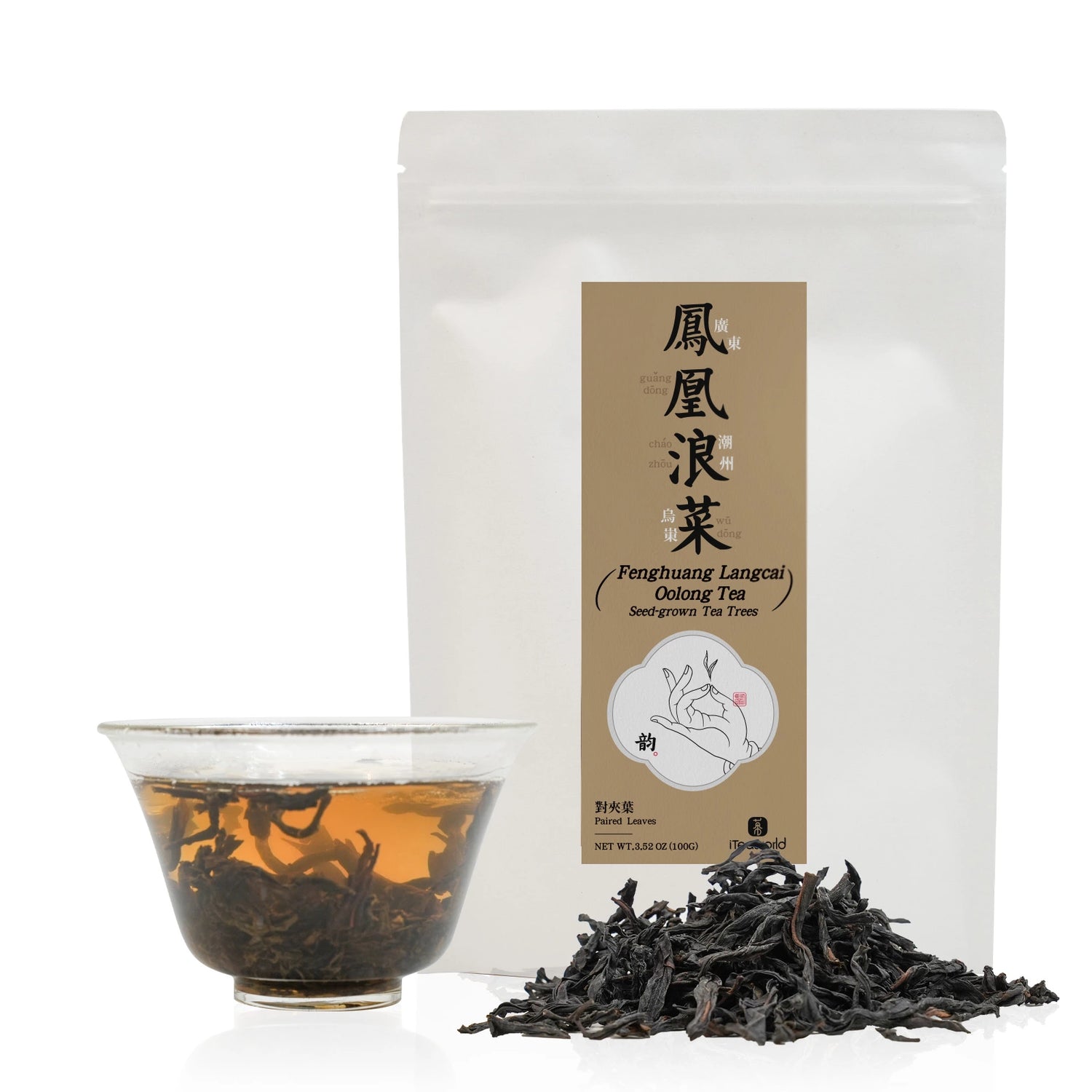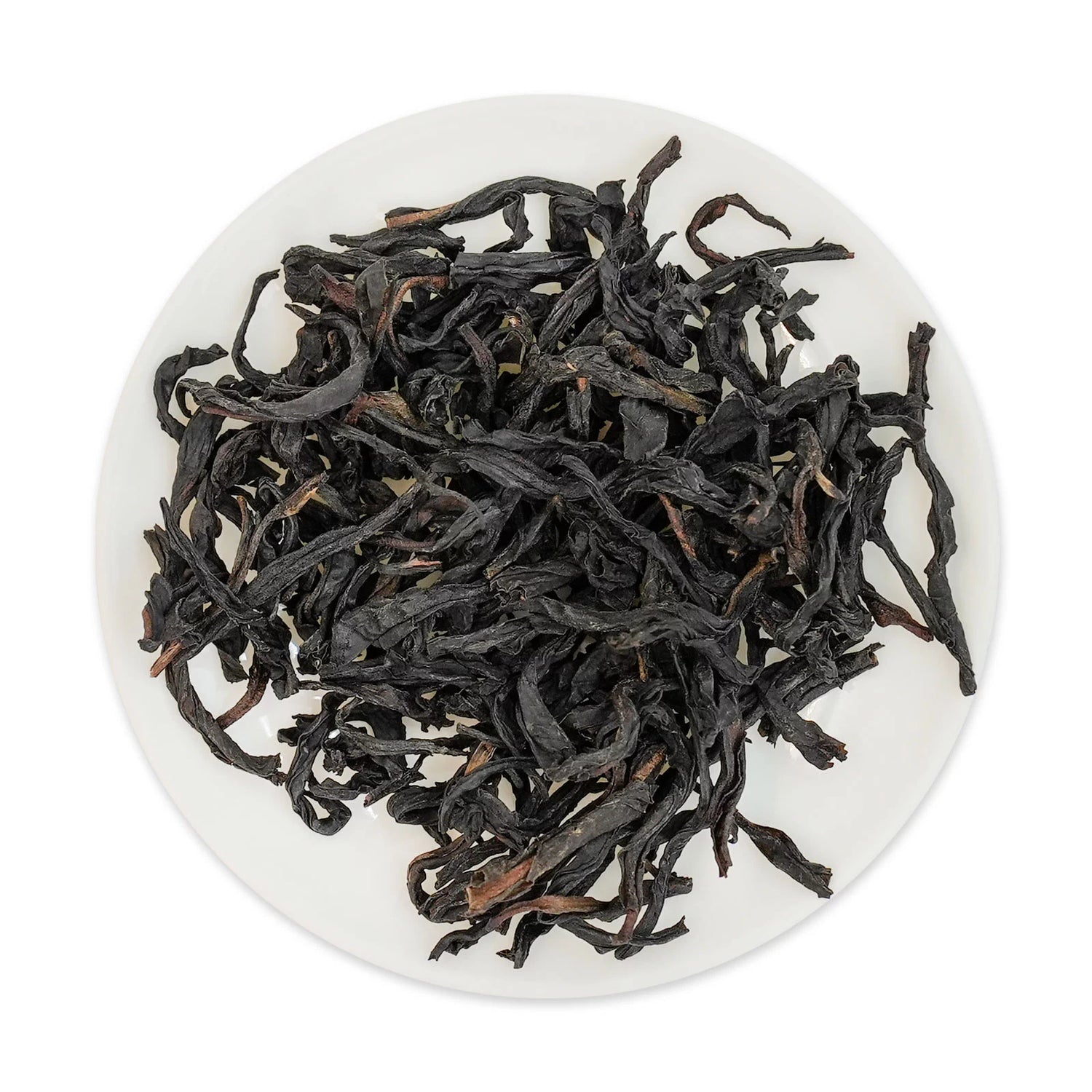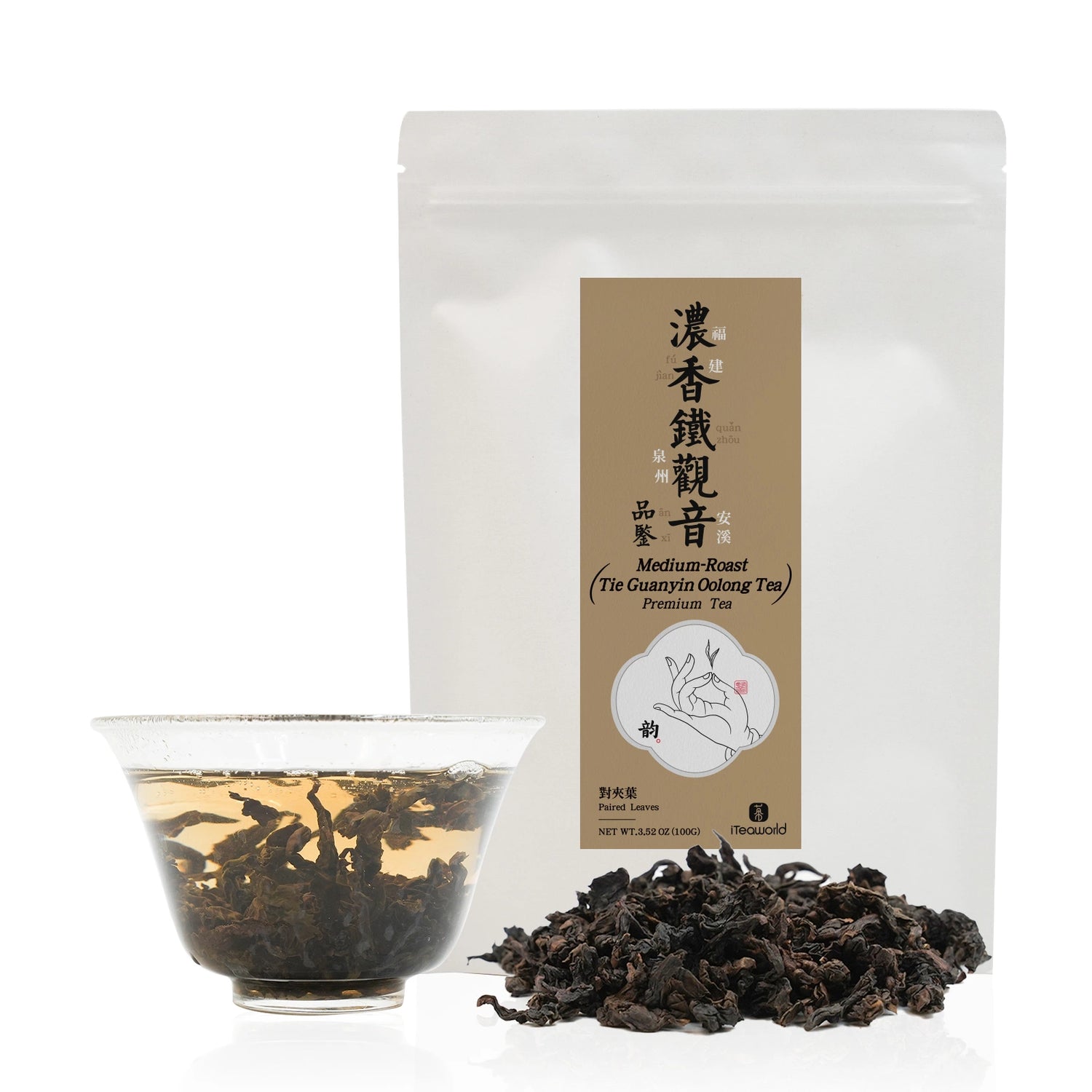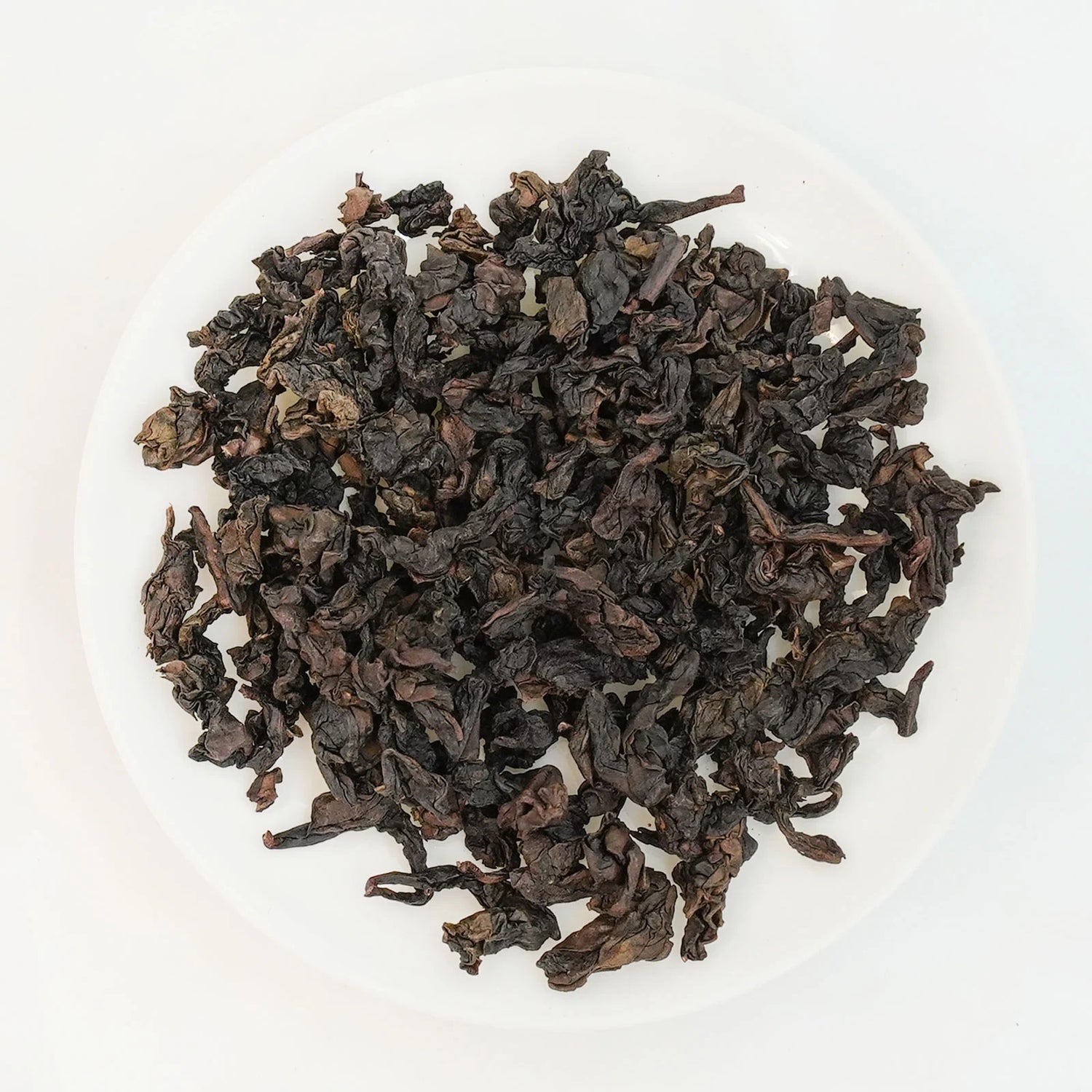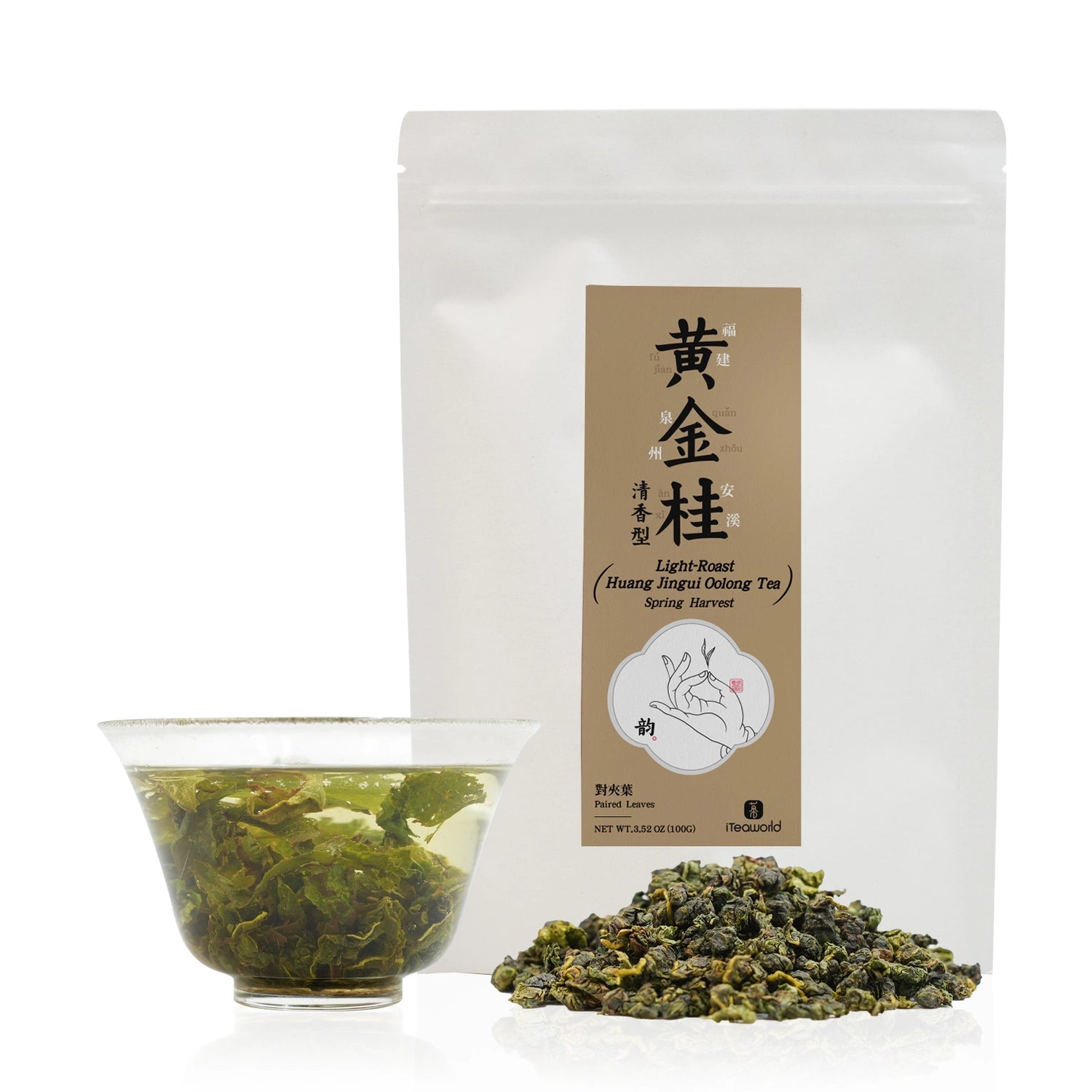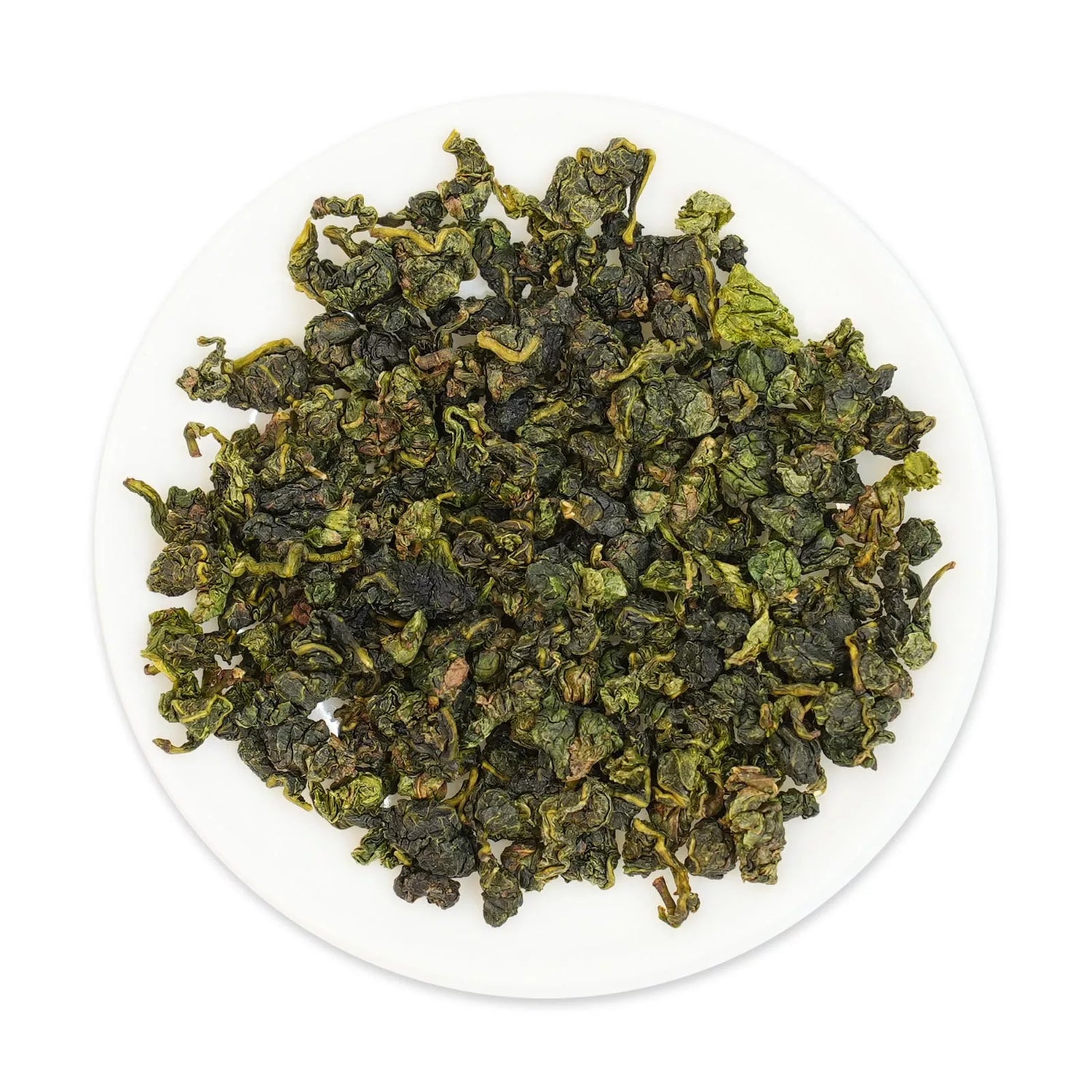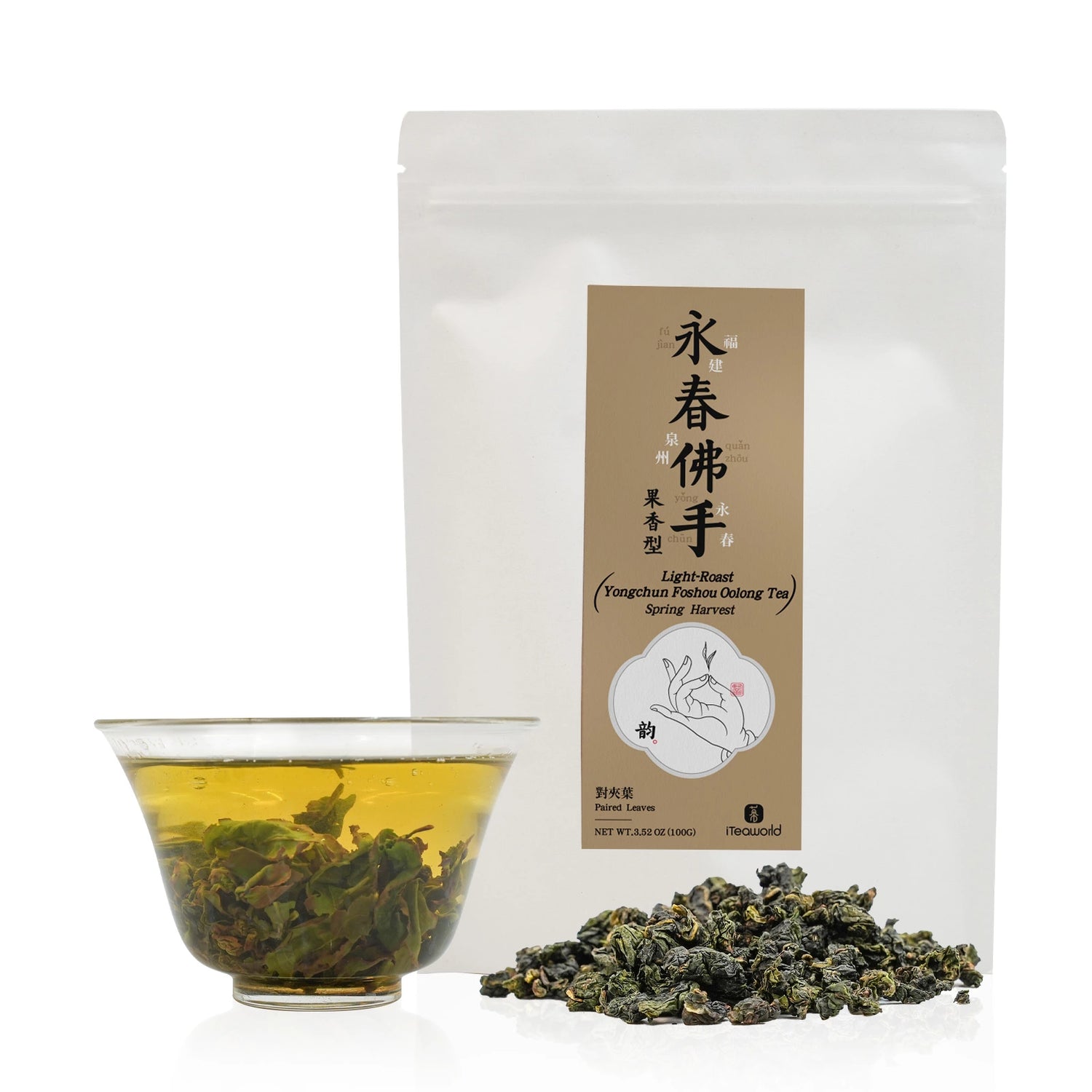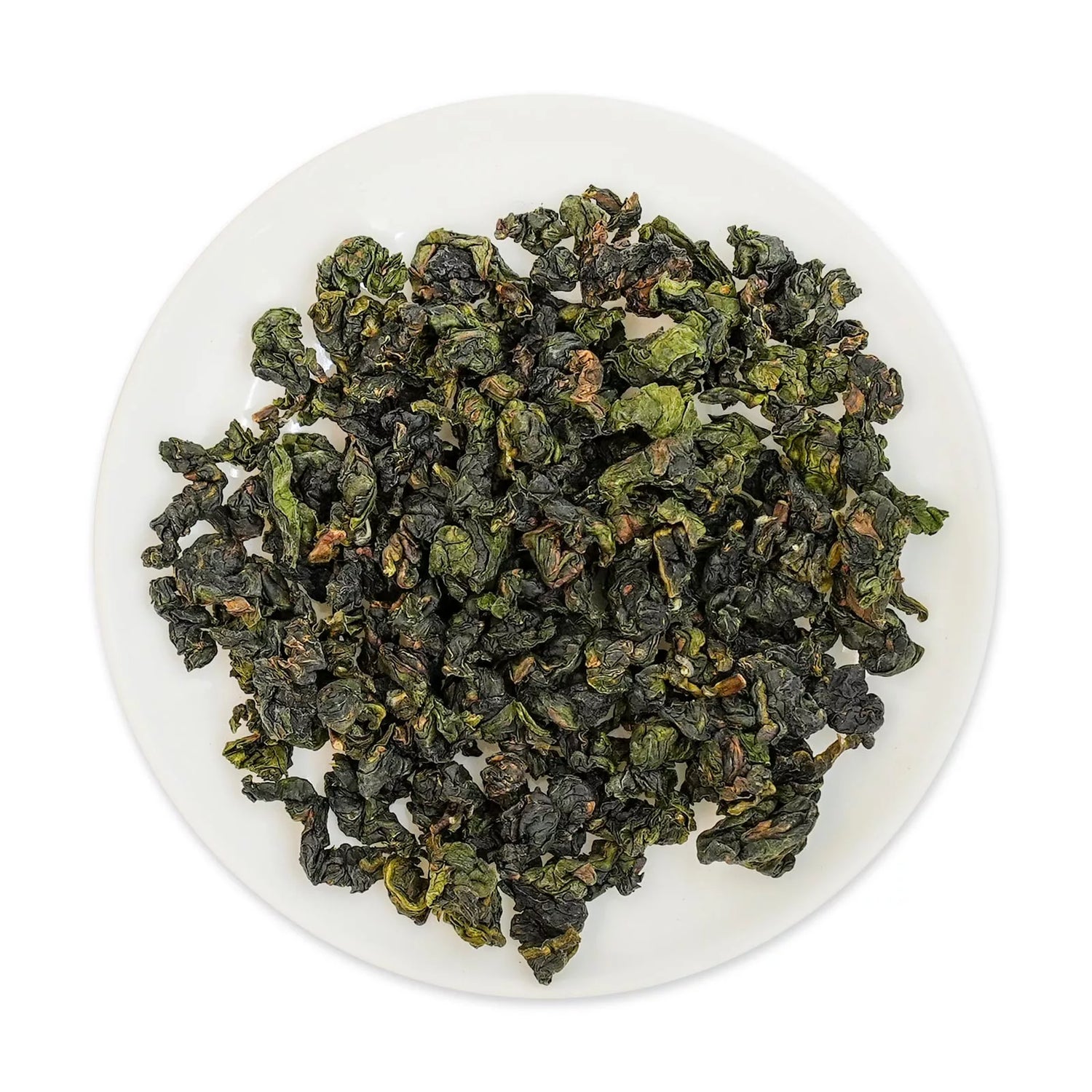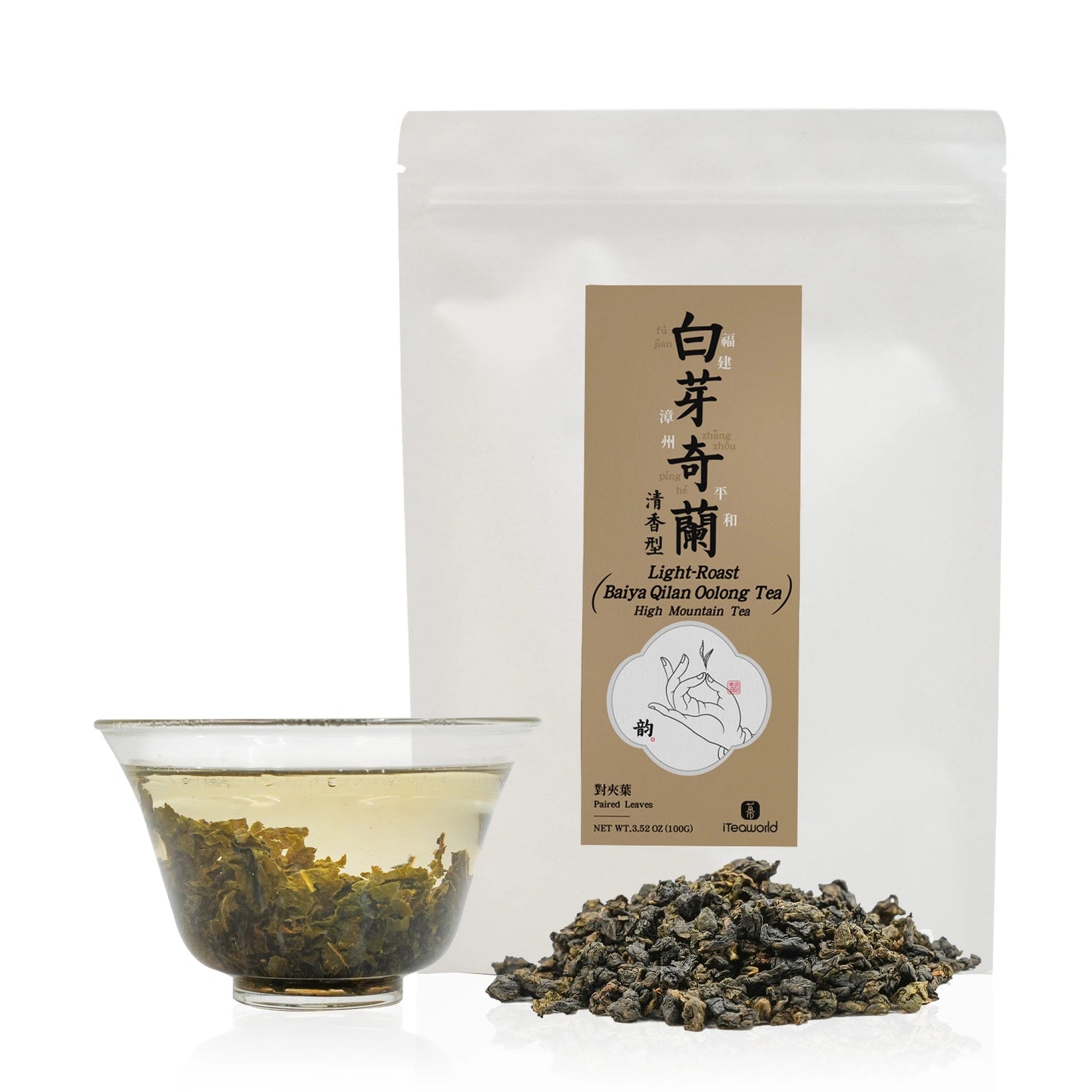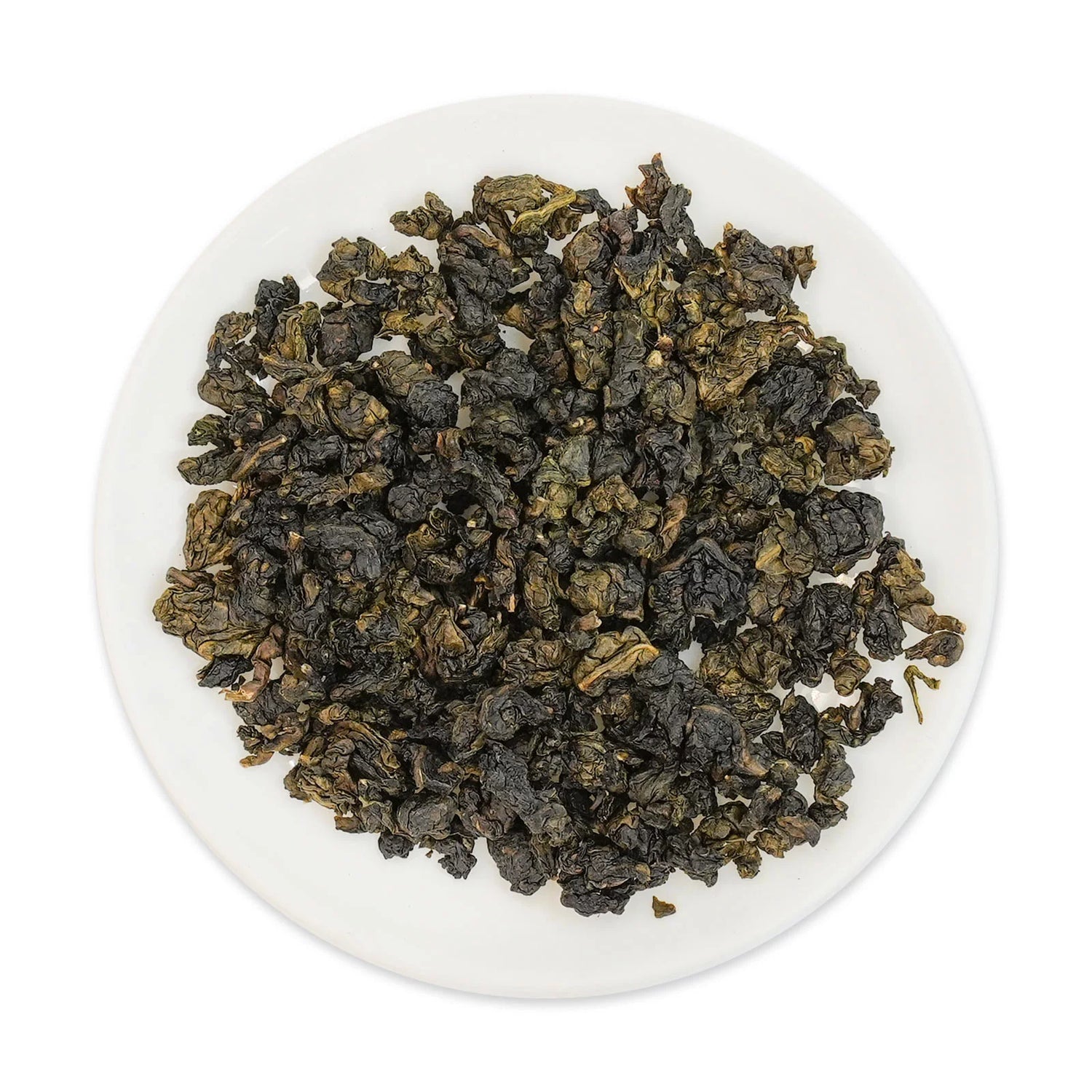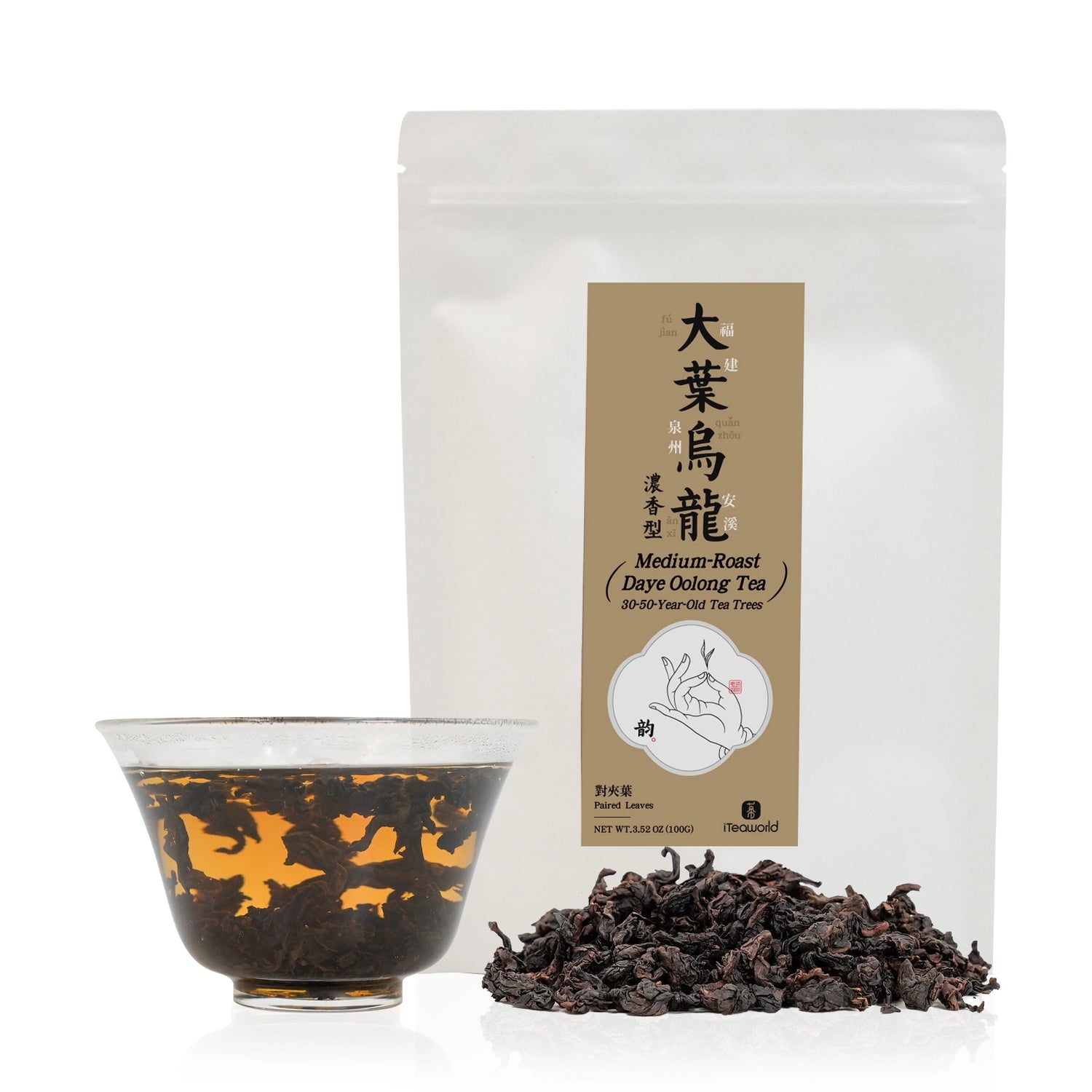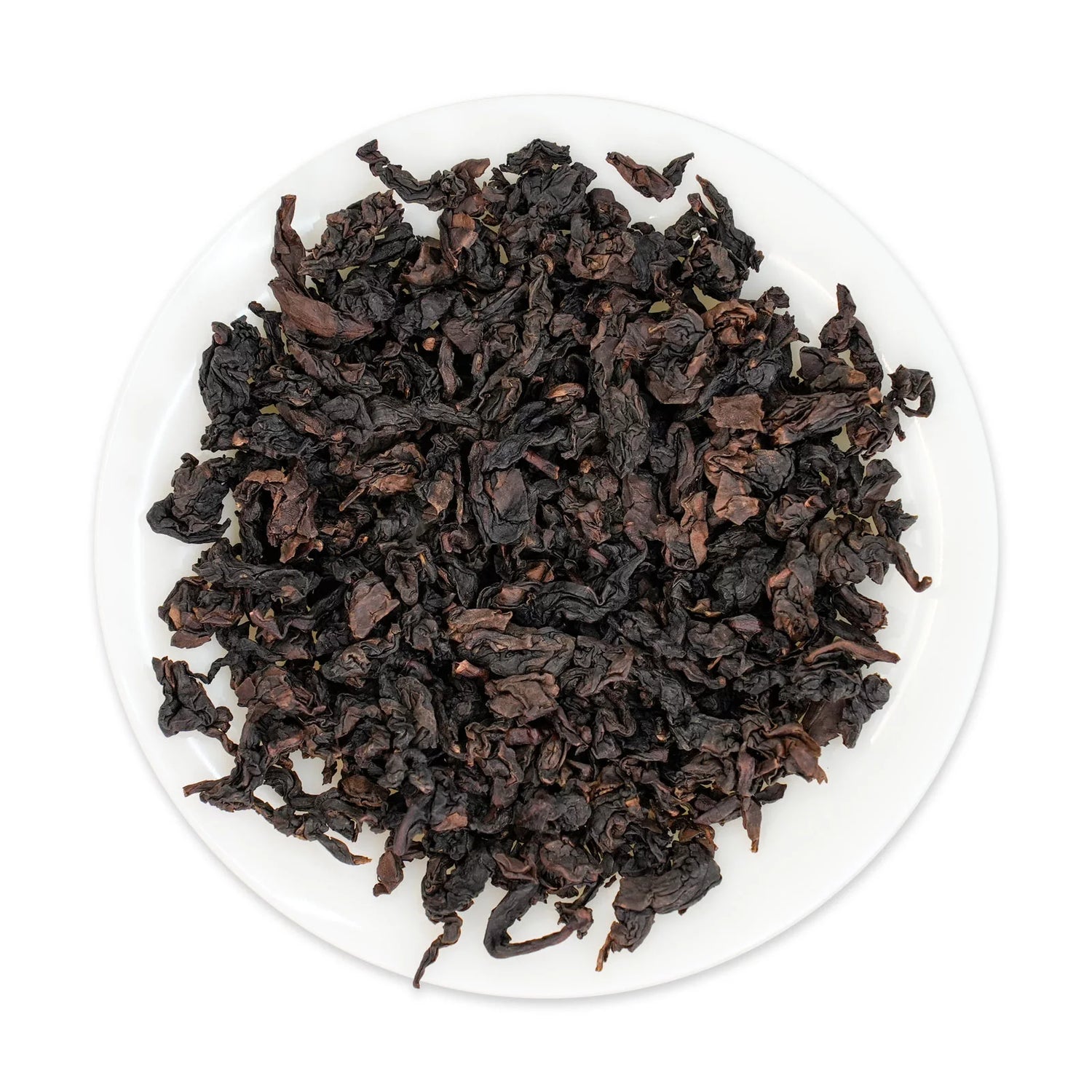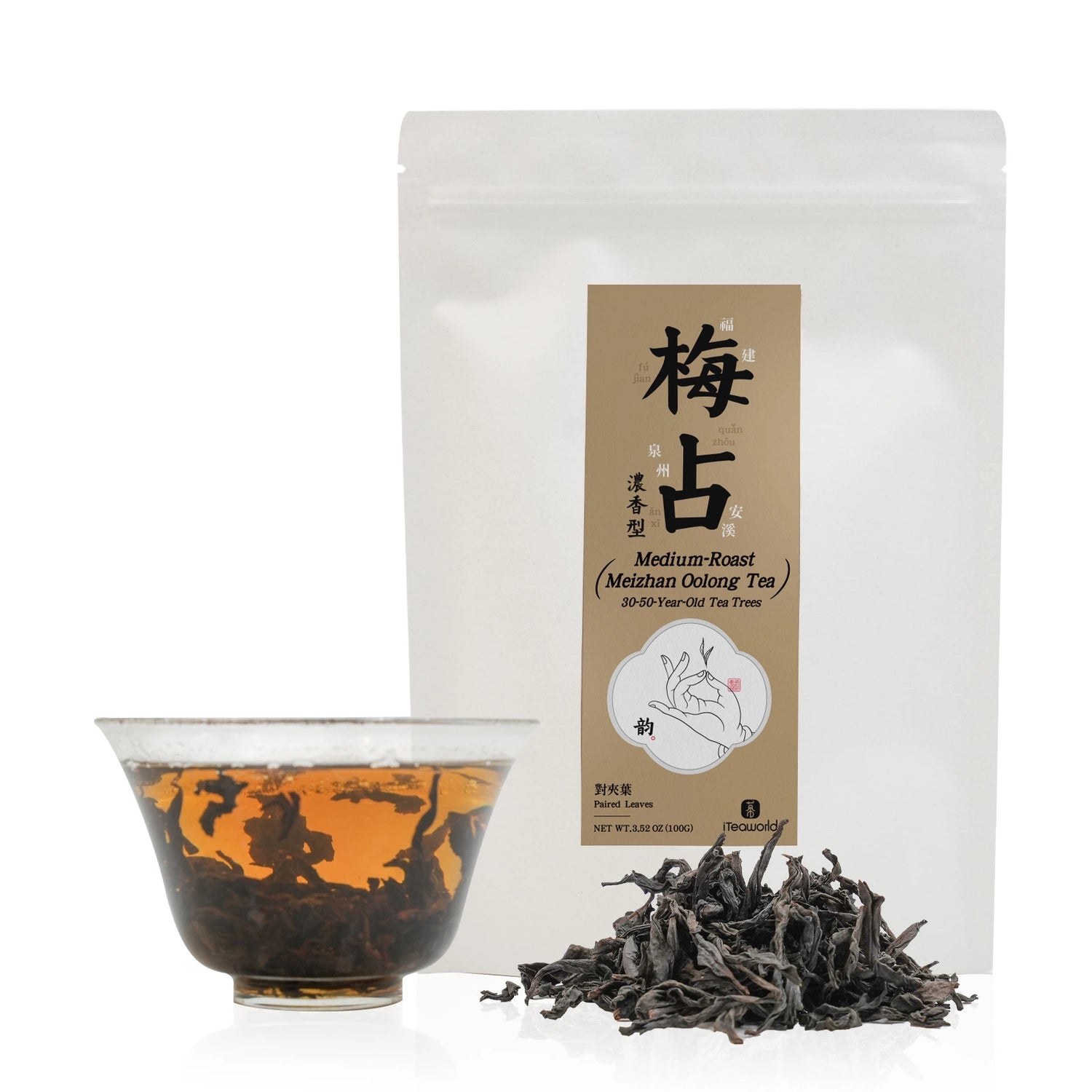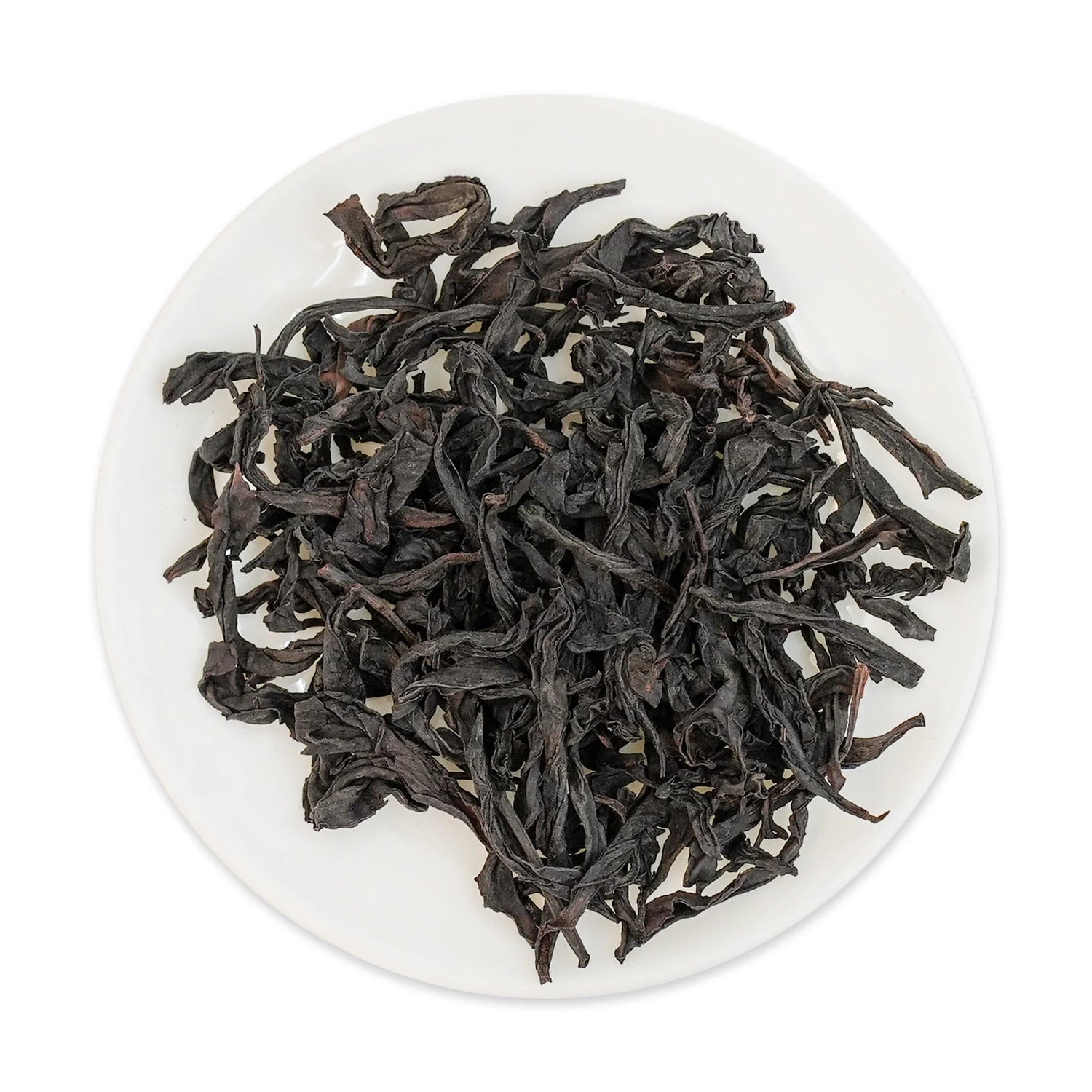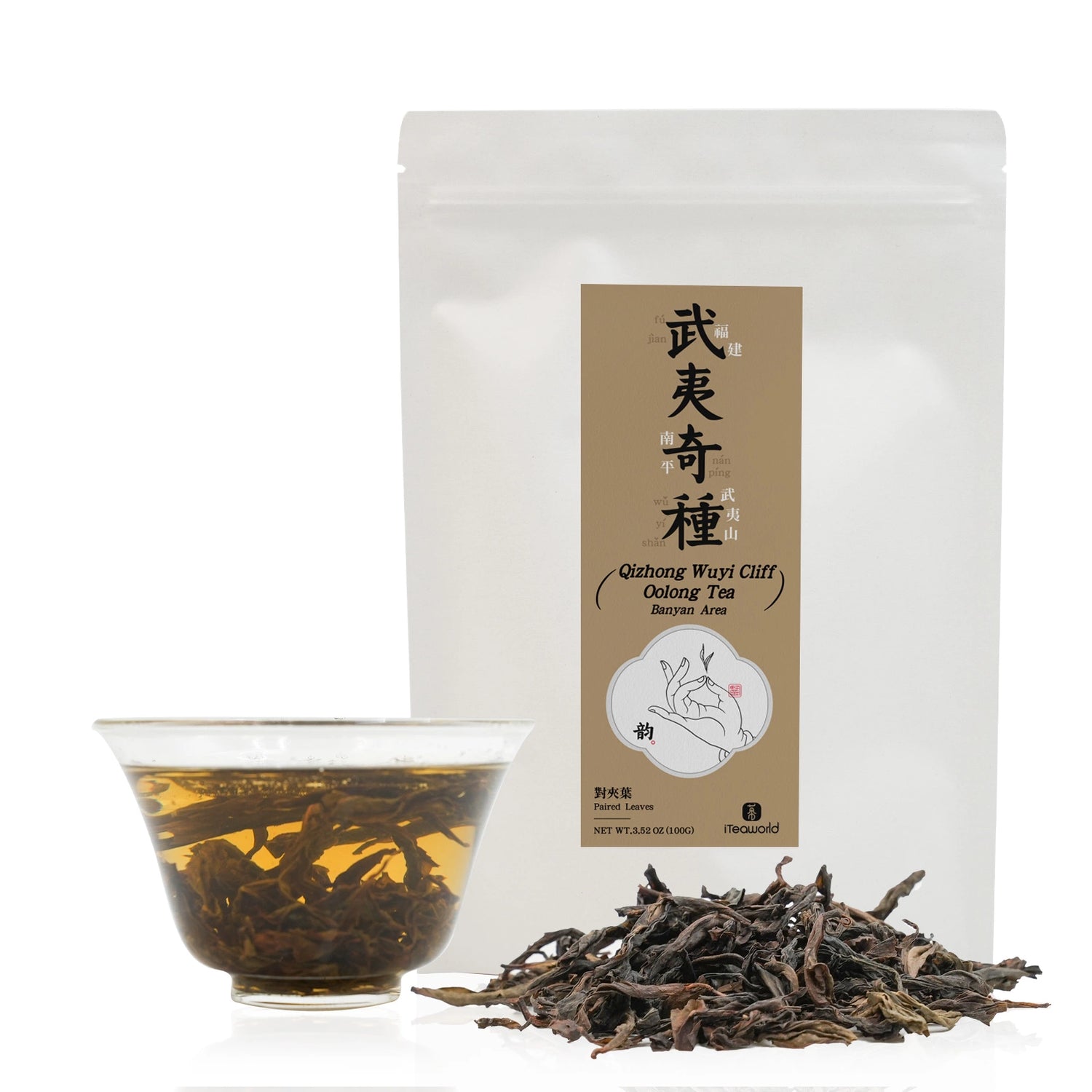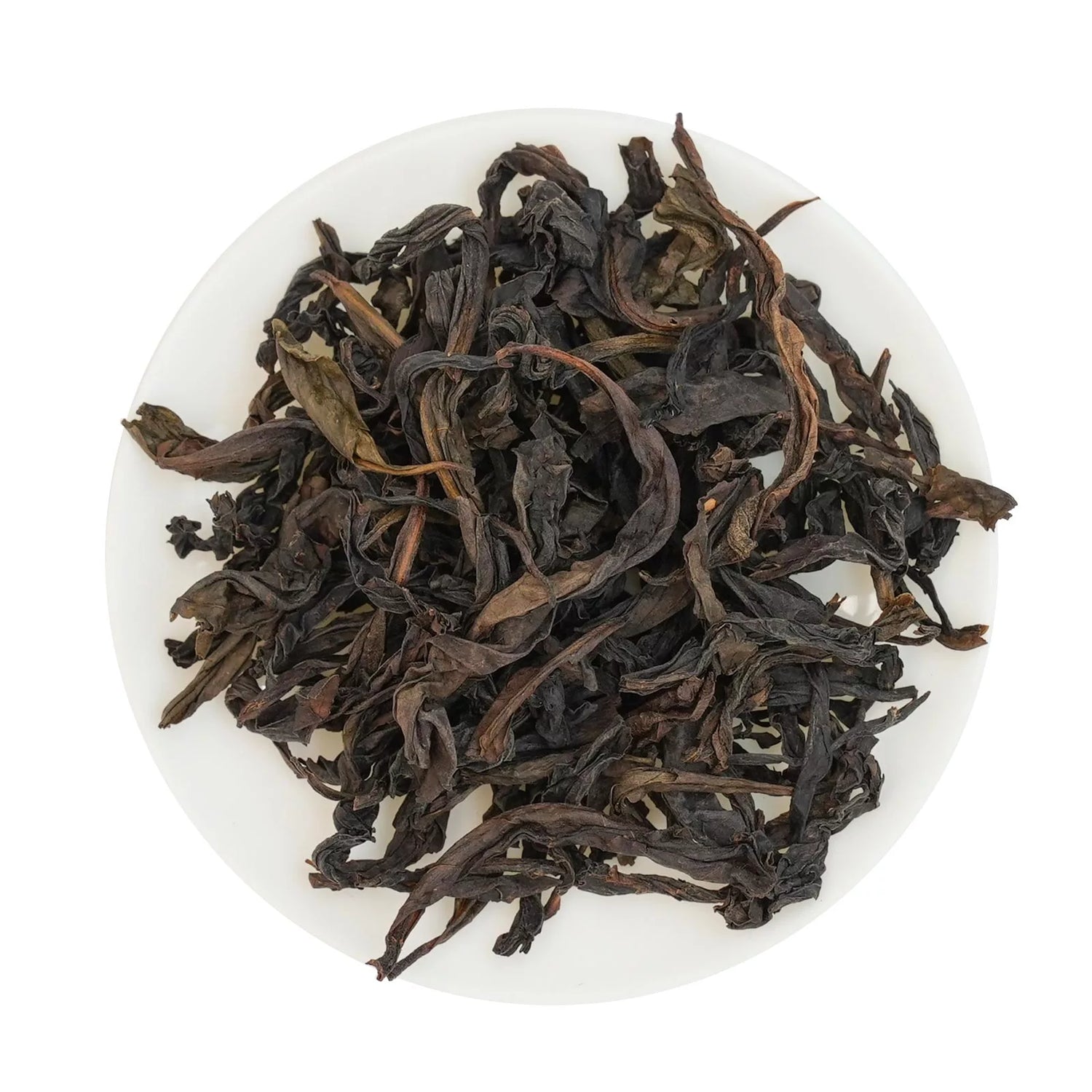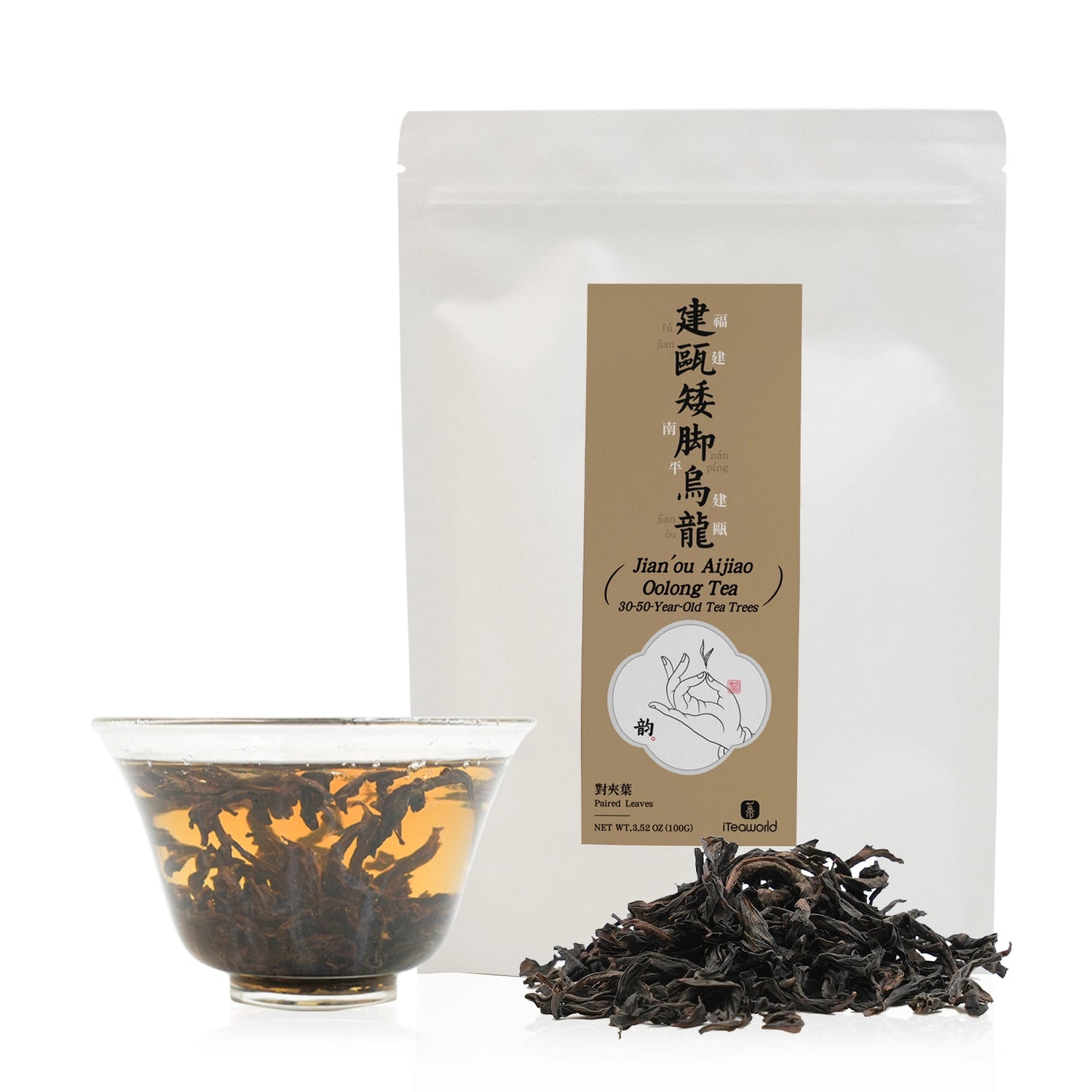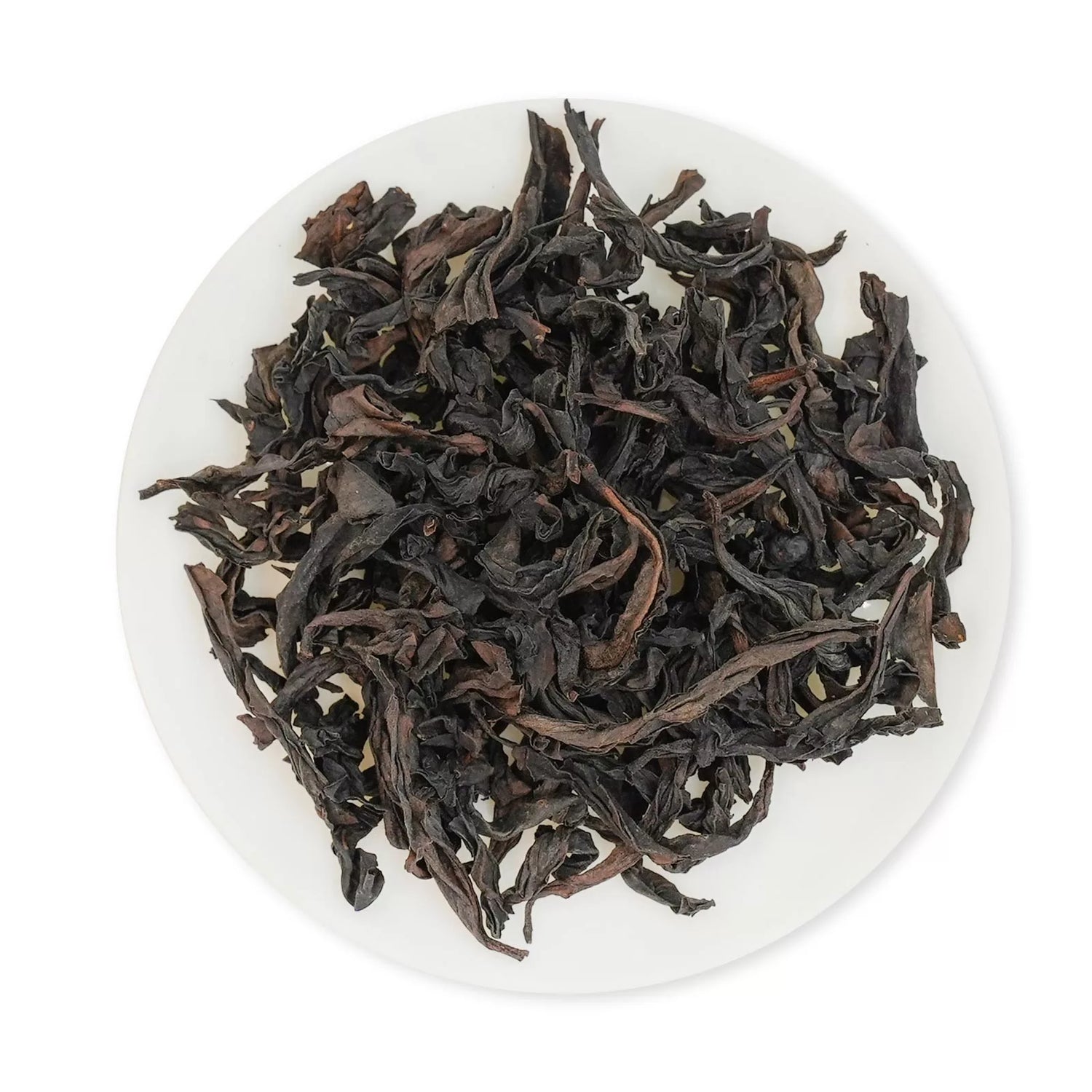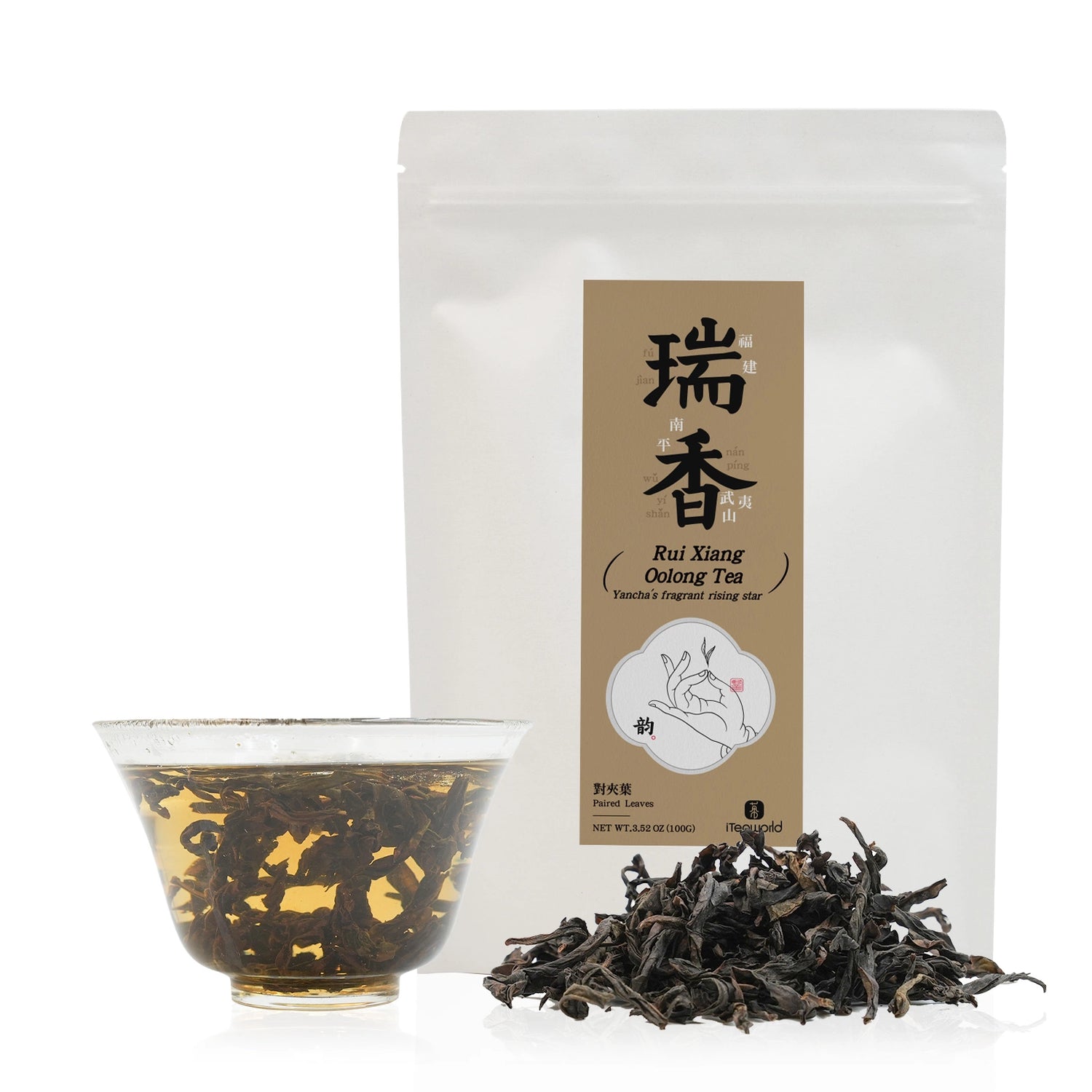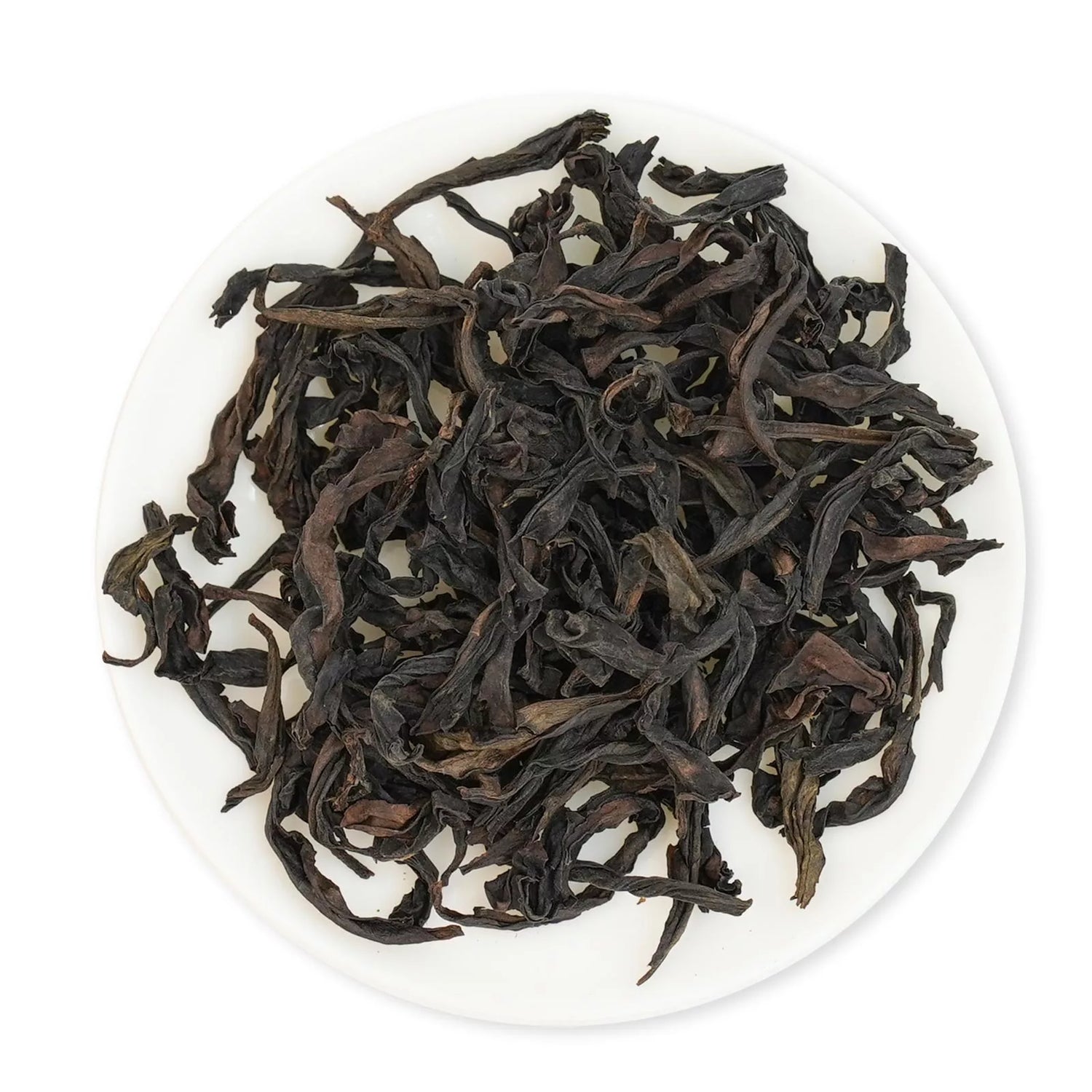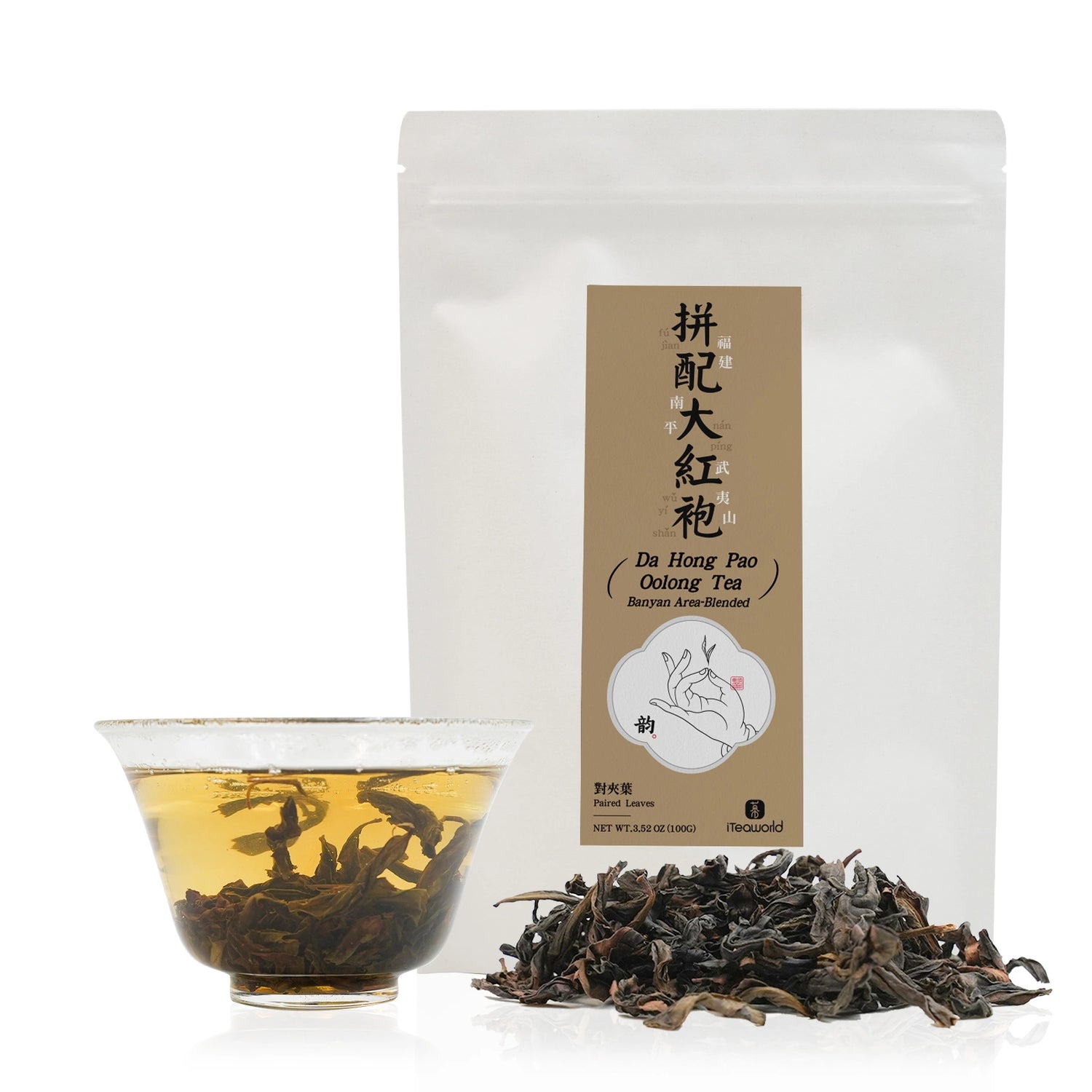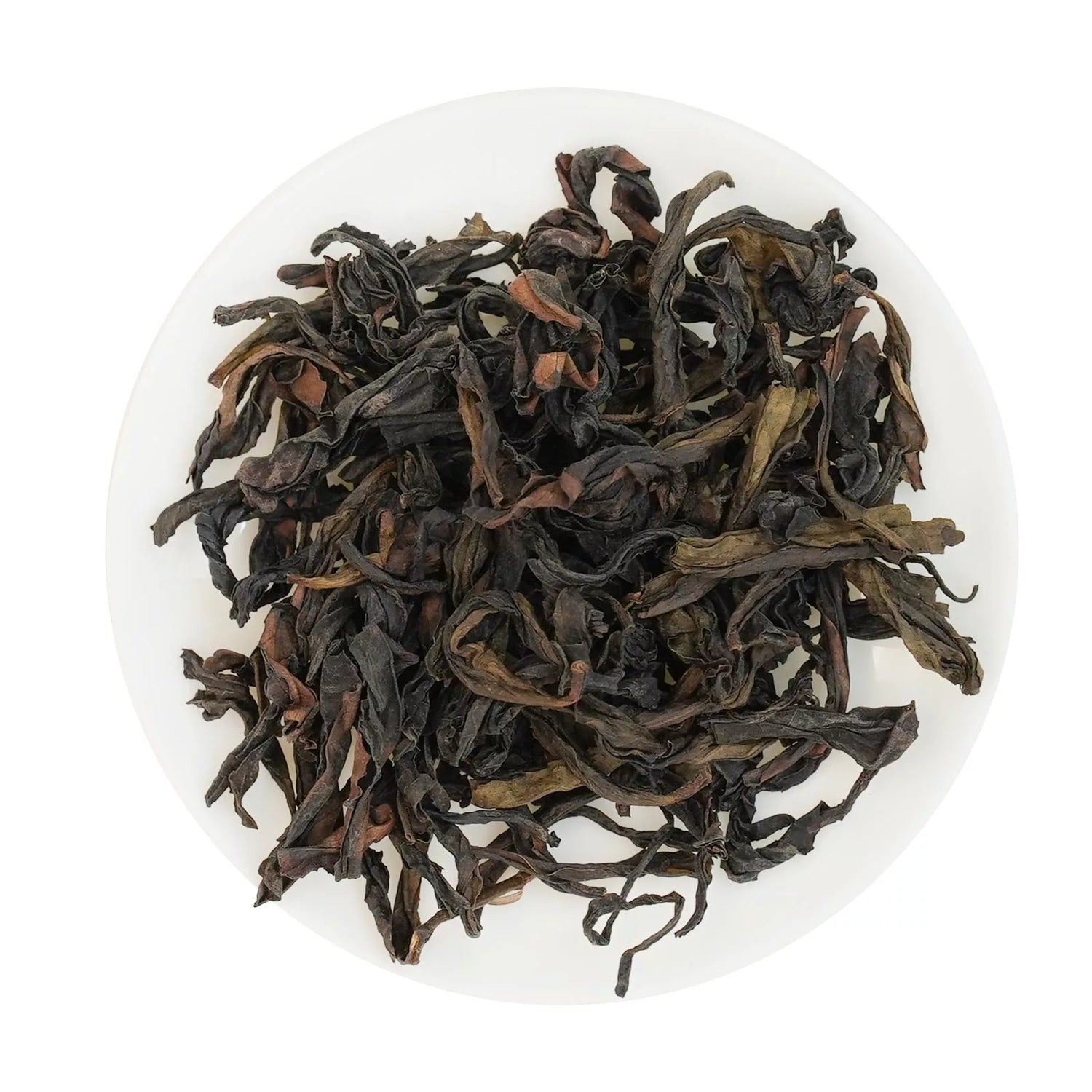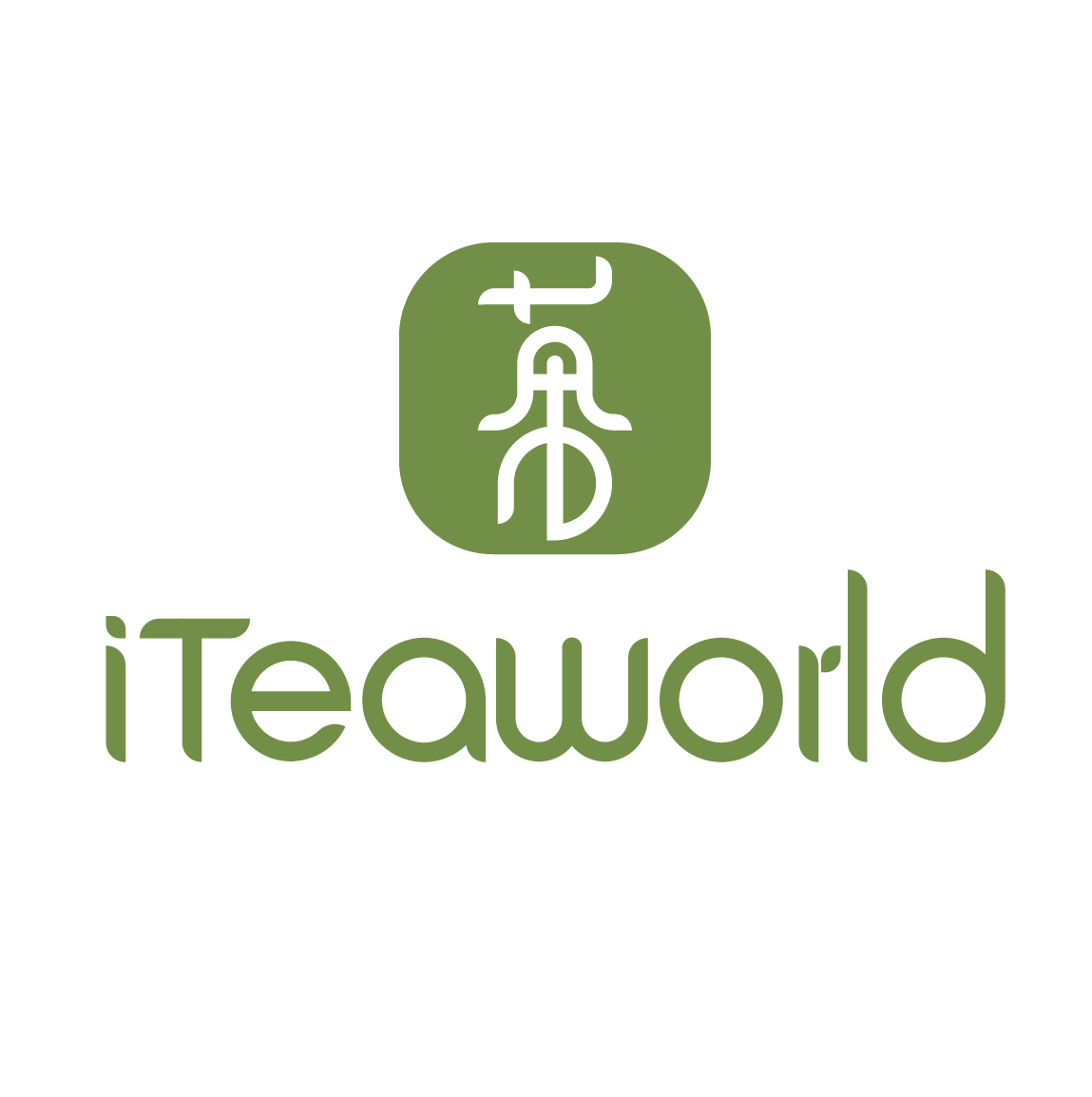Sort by:
71 products
71 products
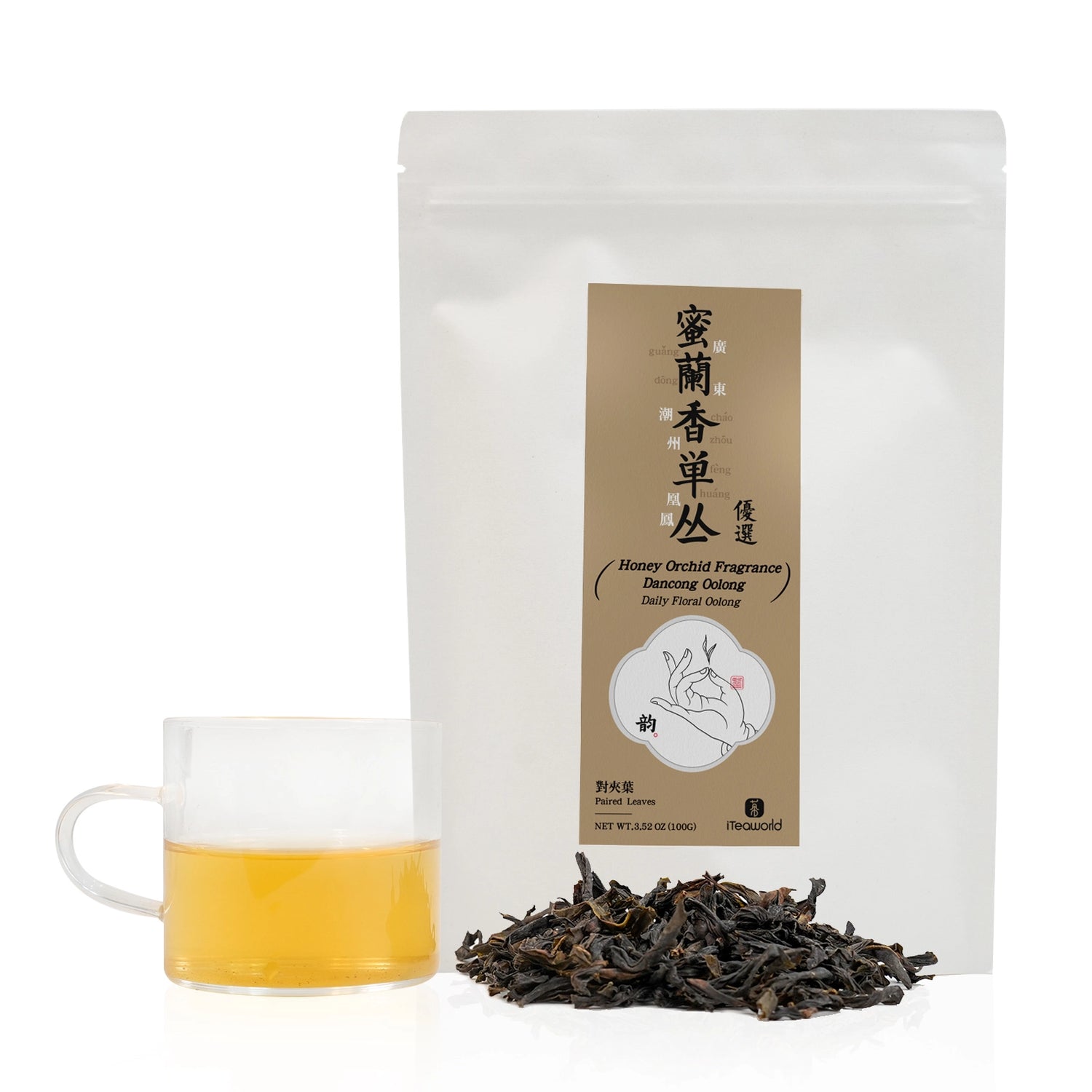

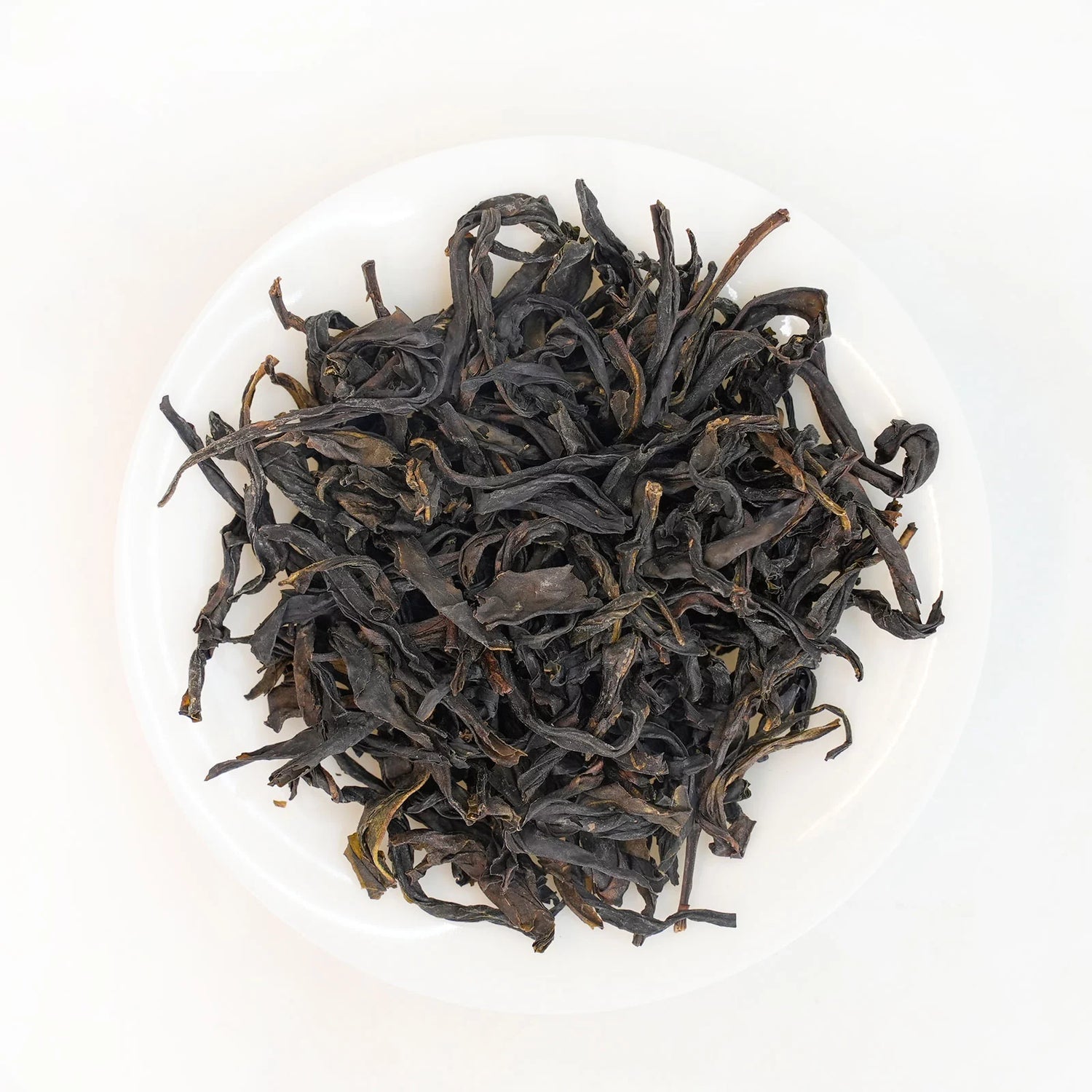
Mi Lan Xiang Dancong (Honey Orchid Aroma) oolong tea 100g for daily use (2025 spring)
$24.99 USD
Unit price perMi Lan Xiang Dancong (Honey Orchid Aroma) oolong tea 100g for daily use (2025 spring)
$24.99 USD
Unit price perFenghuang Dancong (Mi Lan Xiang)|凤凰单枞蜜兰香
Introduction
Mi Lan Xiang Dancong is one of the most celebrated Phoenix Dancong oolongs, known for its naturally rich honey-orchid aroma. The medium-twisted, dark dry leaves brew into a golden amber liquor, offering a full-bodied taste with layers of floral and fruity sweetness. Its nectar-like smoothness lingers across multiple infusions, with a refreshing aftertaste that deepens as you brew.
This tea comes from a village located in one of the premium zones for Zhongshan Dancong—an area recognized by locals as the gateway to the high-mountain growing region. Teas from this zone are considered top-grade among commercial Dancongs, offering exceptional quality for the price. The tea is crafted by a seasoned tea maker from a family with a long tradition of tea-making, with over 20 years of hands-on experience.
Origin: Fengxi Village, Fenghuang Town, Guangdong | 500m
Oxidation: 40-50% | Roast: Medium (100-120°C, 6-10h)
Tea Maker: Liu Chengpeng, a second-generation tea artisan with over 20 years of tea-making experience in a family that has crafted Dancong tea for generations.
Cultivar: Mi Lan Xiang Dancong
Harvest: April 2025 (Spring)
Elevation: 500-600m
Oxidation: Medium (40–50%)
Roast: Light (traditional charcoal finishing)
Shelf Life: 3 years
Storage: Store in an airtight container in a cool, dry, and odor-free place. For light-roasted Dancong, refrigeration is recommended to preserve its floral aroma.
Brewing
Vessel: Porcelain gaiwan / thin clay pot
Water: Spring/pure, 100ml : 5g tea, 100°C|212°F
Steeping: 1st-3rd: 8-12s; 4th-7th: +5-10s per steep
Flavor
Aroma: Orchid (main), honey, ripe fruit notes
Taste: Thick like honey | Smooth as nectar
Aftertaste: Lingering >1min, cooling floral finish
Occasions
Morning indulgence (energizing yet smooth)
Afternoon relaxation (floral aroma soothes the mind)
Cold brew (4°C, 2h; enhances fruity notes)



Jian’ou Wuyi Shui Xian (High Mountain, 30-50 years Old Bush) Oolong for Daily 2025
From $1.99 USD
Unit price perJian’ou Wuyi Shui Xian (High Mountain, 30-50 years Old Bush) Oolong for Daily 2025
From $1.99 USD
Unit price perWuyi Shui Xian (High Mountain, Old Bush)
Wuyi Shui Xian is one of the signature cultivars of Wuyi rock oolong. it combines rich floral aroma with a thick, velvety liquor. Originating in the Qing dynasty, Shui Xian is the only semi-arbor cultivar among Wuyi teas. Old bush (lao cong) trees—typically 50+ years—produce deeper, smoother infusions with forest-like clarity, woodsy depth, and signature “cong” flavor. Compared to newer bushes, old trees yield higher amino acids and lower bitterness, making them more enduring in brews and suitable for medium charcoal roast.
This tea is sourced from Baizhang Village in Xiaoqiao Town, just outside the Wuyishan core scenic area. With a 1,000-year legacy of tea production and imperial tribute history, Baizhang sits at 730m elevation in the southeast Wuyi Mountains. The terroir—constant mist, gravelly soil, and rich minerals—creates optimal conditions for deep, layered teas at a more accessible price point.
We compared several Shui Xian teas from within the Wuyi core and selected this high-mountain, old-bush version for its mature flavor, authentic craftsmanship, and outstanding value. With a taste profile reminiscent of 40–50-year-style Shui Xian, this tea is not only beginner-friendly but also worthy of daily storage and long-term appreciation by seasoned drinkers.
Origin: Baizhang Village, Xiaoqiao Town, Jian ou City, Fujian, China | Elevation: 730m
Roasting: Traditional charcoal roasting
Tea Maker: Zheng Xiongqing, veteran tea artisan from a multi-generation tea family
Cultivar: Shui Xian (approx. 30-50 year-old bushes)
Harvest: Spring 2025
Oxidation: Medium (40–50%)
Roast: Medium (charcoal roasted)
Suitable for: Daily drinking, mellow-flavor lovers, aged bush oolong enthusiasts
Shelf Life & Storage
Shelf Life: 5+ years (aging possible but not required)
Storage: Store in an airtight container in a cool, dry, odor-free place. No refrigeration needed. For longer-term storage, avoid frequent air exposure.
Brewing Guidelines
-
Vessel: Porcelain gaiwan or clay teapot
-
Water: 5g tea : 100ml spring or filtered water | 100°C / 212°F
-
Steeping:
-
Infusions 1–3: 10–15 seconds
-
Add 5–7 seconds per infusion thereafter
-
Yields 8–10 infusions
-
Flavor Profile
-
Aroma: Toasted wood, orchid, subtle aged sweetness
-
Taste: Smooth and clean, with soft florals, wood, and a gentle roasted finish
-
Mouthfeel: Round and mellow, light astringency
-
Aftertaste: Light and lasting, with a comforting warmth; “rock rhyme” (Yan Yun) is subtle
Best Enjoyed When...
-
You prefer a softer, more approachable Wuyi oolong
-
You want a daily tea with the depth of older bushes
-
You’re exploring non-Zhengyan teas with high value and honest craftsmanship
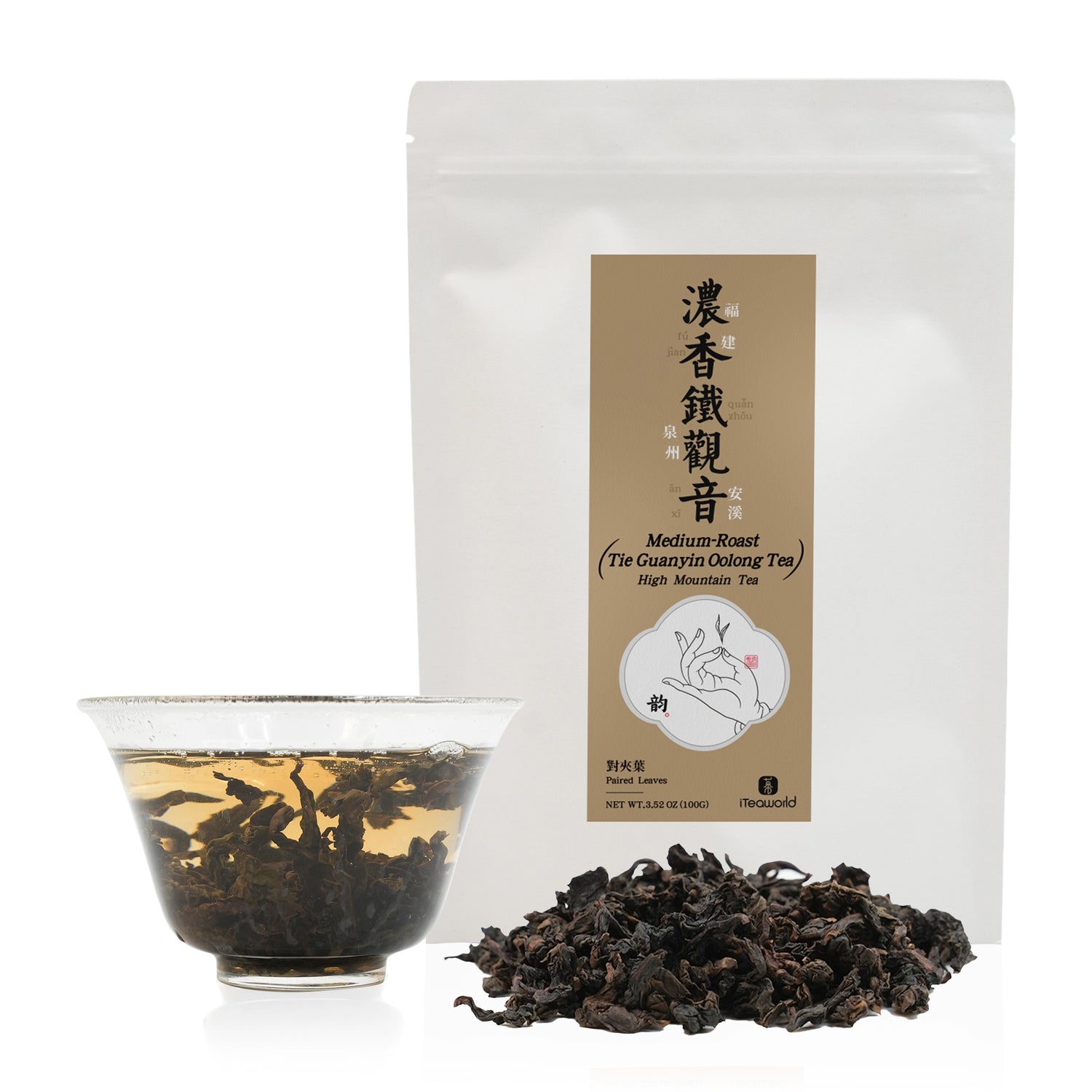
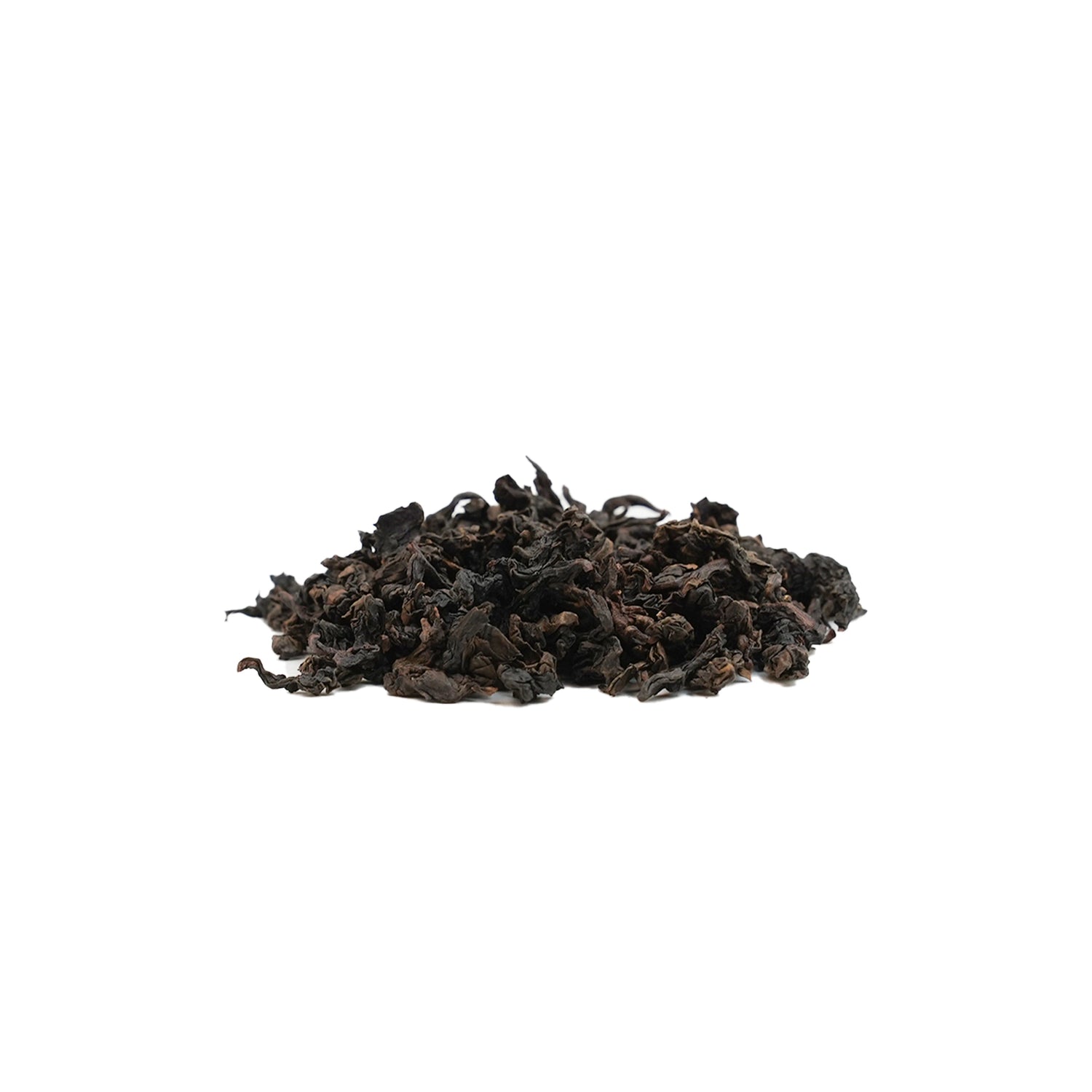
Anxi Tie Guan Yin (Traditional Charcoal-Roasted Oolong) for Daily Enjoyment
$18.99 USD
Unit price perAnxi Tie Guan Yin (Traditional Charcoal-Roasted Oolong) for Daily Enjoyment
$18.99 USD
Unit price perTie Guan Yin (Traditional Charcoal-Roasted Oolong) | 浓香型铁观音(炭焙)
Introduction
Tie Guan Yin is one of the most iconic oolong teas from China’s Fujian province. While its light-roast counterpart is known for floral fragrance, this traditional roasted style highlights a different spectrum—mellow body, dried fruit depth, and layered complexity.
This tea comes from Longjuan Village in Anxi, grown at 800–1000m elevation in sandy, well-drained soils surrounded by frequent mists. The region is known for producing small-batch charcoal-roasted Tie Guan Yin with strong aging potential and rich aroma.
Crafted by Wang Zhiyuan, a veteran tea maker, this 2024 spring harvest features tightly rolled leaves, roasted over low charcoal heat. Expect caramel sweetness, notes of longan and jujube, and a honeyed aftertaste. It’s a refined yet accessible choice for those who enjoy structure, warmth, and endurance in their oolongs.
Origin: Longjuan Village, Longjuan Township, Anxi County, Fujian, China | 800–1000m
Roasting: Traditional charcoal roasting (light-medium fire)
Tea Maker: Wang Zhiyuan, seasoned tea artisan with local acclaim
Cultivar: Tie Guan Yin
Harvest: Autumn Tea, 2024
Oxidation: Medium (45–55%)
Roast: Light to medium (Charcoal roasted)
Suitable for: Daily drinking, cooler seasons, or fans of roasted, full-bodied oolong
Shelf Life: 3–5 years
Storage: Store in an airtight container away from light, heat, and moisture. Best consumed within 1–2 years for peak aroma; suitable for slow mellowing.
Brewing
Vessel: Yixing clay teapot or porcelain gaiwan
Water: 100ml spring/pure water : 5g tea | 100°C / 212°F
Steeping:
-
1st–3rd infusions: 10 seconds
-
Later infusions: Add 5–10 seconds per steep
-
Can be brewed up to 8–10 times
Flavor Profile
Aroma: Caramel, roasted rice, longan, jujube, hint of smoke
Taste: Full-bodied and mellow, with sweet dried fruit and subtle char
Mouthfeel: Silky and rounded, with thick liquor and soft finish
Aftertaste: Honeyed, clean, and slightly mineral—lingers on the palate
Best Enjoyed When...
-
You’re looking for a warming, cozy oolong for cooler days
-
You enjoy roasted teas with depth, but not too much bitterness
-
You want a red wine–like oolong: structured, smooth, and complex
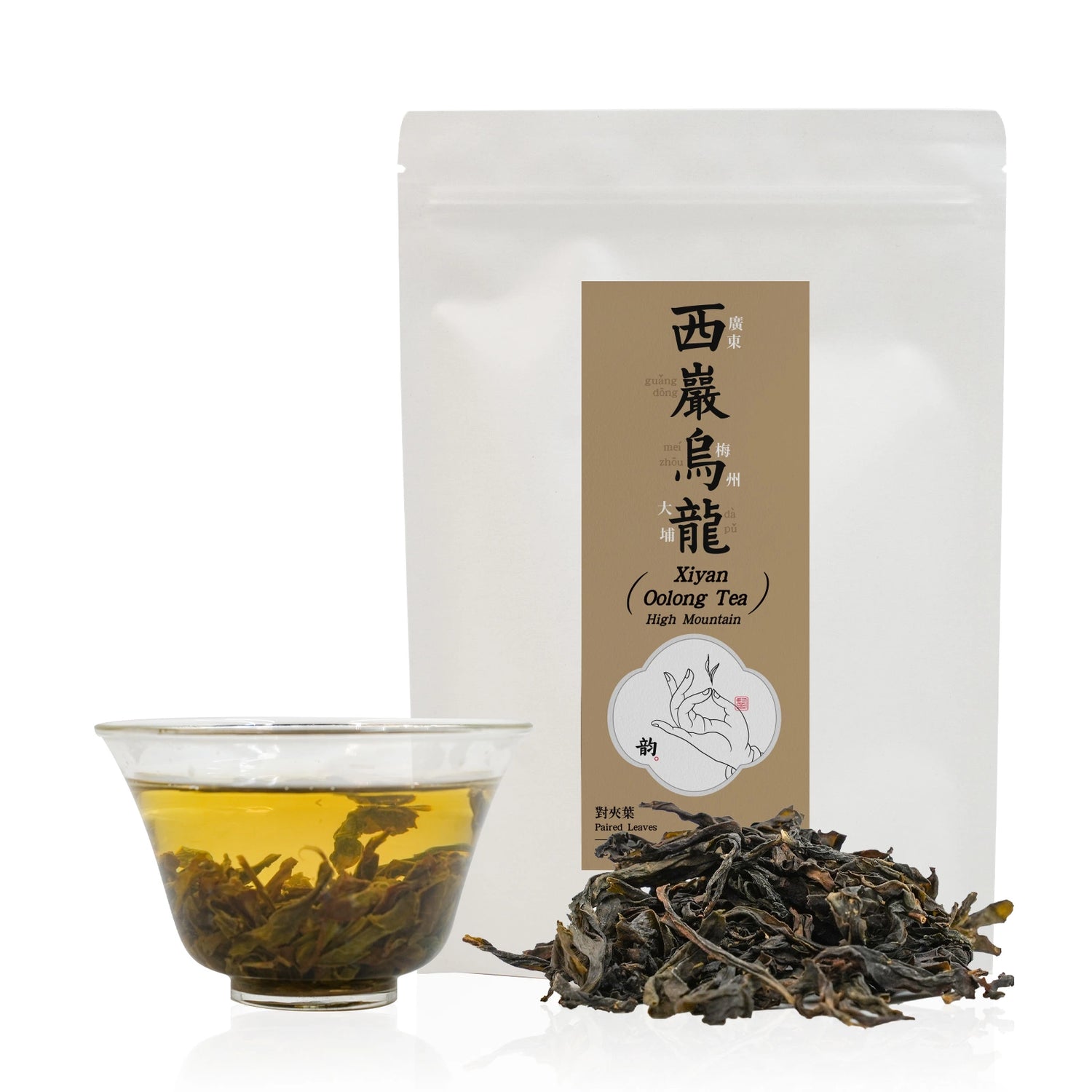
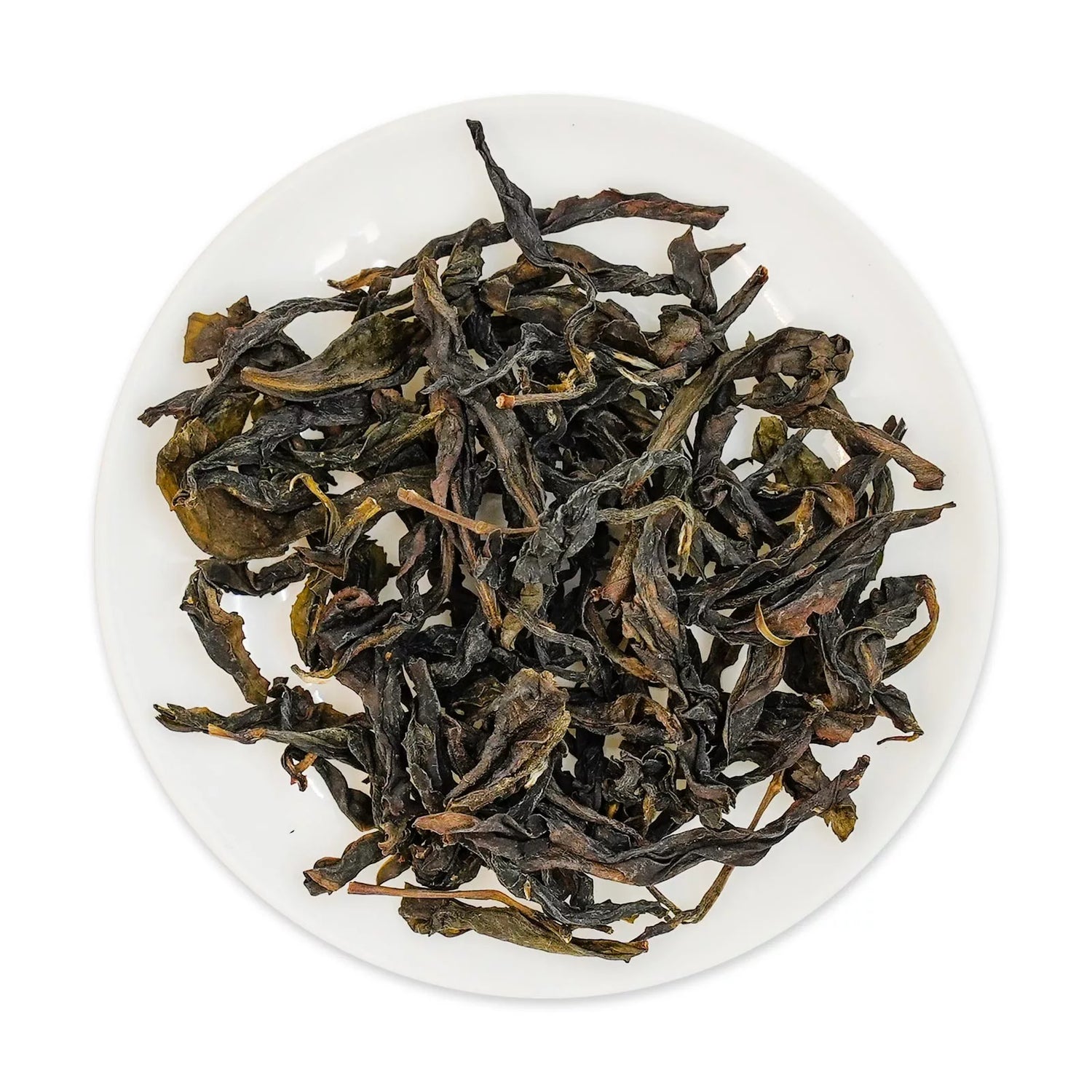
Premium Xi Yan Oolong combining Dancong fragrance with Wuyi-style strength 2025 100g
$21.99 USD
Unit price perPremium Xi Yan Oolong combining Dancong fragrance with Wuyi-style strength 2025 100g
$21.99 USD
Unit price perXi Yan Oolong | The Wild Backbone of Guangdong Oolong
A bold, floral, and mineral-rich oolong from the rocky slopes of Meizhou—combining Dancong fragrance with Wuyi-style strength.
Xi Yan Oolong is one of the most powerful and characterful oolongs in the Guangdong tea family. Grown in the remote mountain village of Xiyan in Meizhou, this tea delivers the floral lift of Phoenix Dancong along with the grounded body and minerality of Wuyi rock tea.
If Dancong is the perfume, and Lingtou is the dessert—Xi Yan is the mountain.
Tea Details
-
Cultivars: Local group varietals (mainly Shui Xian, Mei Zhan)
-
Harvest: Spring 2025
-
Origin: Xiyan Village, Fenglang Township, Meizhou, Guangdong, China
-
Elevation: 500–700m
-
Tree Age: 50+ years
-
Roasting: Heavy charcoal roasting (charcoal briquetting)
A Tea with Deep Roots in History
The Xiyan region has been cultivating tea since the Tang dynasty, and rose to fame in the Qing dynasty, when monks from the local Xizhu Temple cultivated high-mountain teas that were shipped across Southeast Asia as tribute tea.
Modern Xi Yan Oolong is made mostly from old group-varietal bushes (such as Shui Xian and Mei Zhan), many over 50 years old, growing between 500–700m. Since the 1960s, these high-altitude gardens have been known for a distinct “rock rhyme”—a deep, slightly spicy minerality that sets it apart from the sweeter, lighter oolongs of Chaozhou.
Processing: Heavier Roast, Deeper Flavor
-
Heavy withering + strong leaf shaking (yao qing)
-
Thick stems preserved for body and sweetness
-
Deep charcoal roasting (heaviest in Guangdong)
Compared to other Guangdong oolongs:
-
Xi Yan: rich, roasted, and structured (suitable for aging)
-
Phoenix Dancong: high fragrance, lighter body
-
Lingtou Dancong: soft, sweet, everyday drinker
“Rocky on the outside, floral at the core.”
Flavor Profile: Earth, Fruit, and Florals
-
Aroma: deep floral notes with subtle stone fruit
-
Taste: thick and warming, with hints of baked plum, roasted almond, and a cooling mineral aftertaste
-
Body: full and grounded, with a subtle honey edge
This is a tea that speaks slowly and confidently. It's not about quick aromas—it’s about structure, patience, and wild depth.
Who Should Try This Tea?
-
Fans of Wuyi rock tea (Yancha) looking to explore Guangdong’s version of “rock energy”
-
Dancong lovers wanting something darker, deeper, and more aging-friendly
-
Tea drinkers who value mineral-rich, grounding flavors
-
Those looking for a “serious” daily tea with excellent re-steeping value
Brewing Recommendations
Gongfu Style (recommended):
-
5g per 100 gaiwan
-
95–100°C (203–212°F) water
-
Rinse quickly, then infuse 6–8+ times
-
Start with 10–15 seconds, increase gradually
Western Brewing:
-
2g per 200ml
-
Steep for 1-3 minutes at 95-100°C
-
Re-steep up to 3 times


Premium Lingtou Dancong (Honey Orchid) The Everyday Honey-Sweet Oolong 100g 2025
$24.99 USD
Unit price perPremium Lingtou Dancong (Honey Orchid) The Everyday Honey-Sweet Oolong 100g 2025
$24.99 USD
Unit price perLingtou Dancong | The Everyday Honey-Sweet Oolong
A smooth, affordable, and incredibly drinkable oolong with long-lasting honeyed sweetness—perfect for daily sipping and afternoon tea.
If you're looking for a "universal" tea that’s easy to love, pairs beautifully with desserts, and delivers consistent quality without breaking the bank—Lingtou Dancong is the one. Known for its mellow honey character and exceptional value, this tea could become the next “sweet icon” of Chinese tea, right after jasmine.
Tea Details
-
Cultivar: Bai Ye Dancong (White Leaf Dancong)
-
Harvest: Spring 2025
-
Origin: Lingtou Village, Fubin Town, Raoping County, Chaozhou, Guangdong
-
Elevation: 500–700m
-
Tree Age: Under 30 years
-
Roast: Traditional charcoal roast
Why You Need to Try It
-
Love sweet tea? Its thick honey note rivals most oolongs—and even some black teas.
-
Seeking value? This is one of the most affordable yet flavorful Dancong oolongs.
-
Exploring the diversity of Guangdong oolong? Lingtou is a classic, but outside the better-known Phoenix Dancong system.
Origin & Story: Sweetness Born in the Mountains
Lingtou Dancong, also called Bai Ye Dancong (White Leaf Dancong), comes from Lingtou Village in Raoping County, Chaozhou, Guangdong. First cultivated in 1961, it was selected from wild Phoenix Shui Xian trees and now accounts for over 50% of tea garden area in Guangdong.
-
Cultivar: Small-tree, large-leaf type
-
Elevation: 500–700m
-
Soil: Mountain red clay with good drainage
-
Climate: Warm, misty, ideal for floral and honey aroma development
Flavor Profile: Rich Honey, Soft Floral, Easy to Love
Lingtou Dancong offers a bright, golden infusion with high floral aroma and a distinctive “mi yun” (honey rhyme)—a signature note prized by Chaozhou tea drinkers. It’s:
-
Sweet and smooth, never bitter
-
Medium-thick in body, with a lingering aftertaste
-
Great for pairing with pastries, fruit, or just a peaceful afternoon
Flavor Comparison:
-
Lingtou Mi Lan Xiang (Honey Orchid): Emphasizes honey, subtle florals
-
Phoenix Mi Lan Xiang: Emphasizes orchid, with lighter honey undertone
“A honey-sweet tea you can drink every day and never get tired of.”
Brewing Recommendations
Gongfu Style:
-
5g per 100ml gaiwan
-
95-100°C water
-
Quick rinse, then infuse 6–8+ times starting from 10 seconds
Western Brewing:
-
2g per 200ml
-
Steep at 95–100°C for 1–3 minutes
-
Can re-steep 2–3 times
-
Ya Shi Xiang (Duck Shit) Dan cong Oolong | The Icon of Guangdong Tea
The most famous Dancong oolong from Phoenix Mountain—misleading name, unforgettable taste.
Ya Shi Xiang, literally “Duck Shit Aroma,” is arguably the most well-known Phoenix Dancong oolong internationally. Despite its name, this tea is anything but unpleasant. In fact, it’s often referred to as the “calling card” of Guangdong oolongs, thanks to its bold floral fragrance, silky mouthfeel, and memorable backstory.
Tea Details
-
Cultivar: Ya Shi Xiang (Duck Shit )
-
Harvest: Spring 2025
-
Origin: DingYao Village, Fenghuang Town, Chaozhou, Guangdong, China
-
Elevation: 500-600m
-
Roasting: Traditional charcoal roast
A Legendary Tea with a Mysterious Name
This cultivar got its odd name from the mineral-rich yellow soil where it was originally planted—called “duck shit soil” (鸭屎土) by locals to discourage theft due to the tree’s extraordinary fragrance. Others say the name also comes from the leaf shape, which resembles the leaves of a local tree known as “duck foot wood.”
The original mother tree, now over 300 years old, grows at Pingkengtou Village (坪坑头) at 900m elevation in Phoenix Mountain, Chaozhou. Today, Pingtou is considered the most prestigious origin of Ya Shi Xiang.
Our selection comes from Dingdongjiao, a nearby village sharing the same terroir, altitude, and tree lineage—but with more accessible pricing.
Flavor Profile: Golden Honeysuckle, Orchid, and Ripe Peach
Officially categorized as “Yin Hua Xiang” (Honeysuckle Aroma), Ya Shi Xiang carries a fragrant bouquet of:
-
Orchid and honeysuckle (dominant)
-
Peach nectar or creamy vanilla (in higher grades)
-
Light bitterness on entry that melts into a long, sweet aftertaste
Its flavor is bright, floral, and juicy, making it one of the most beginner-friendly teas in the Dancong family—especially for those who love high-aroma oolongs.
“A tea with a silly name, but serious elegance.”
Brewing Recommendations
Gongfu Style (Recommended):
Teaware: Gaiwan or small teapot (100–150ml)
Tea Amount: 5g
Water Temp: 95-100℃/203-212℉
Infusion Time: Start at 10–15 seconds; can go 7+ infusions
Western-style Brewing:
2g per 100ml
1-3 minutes,95-100℃/203-212℉
Re-steep 2–3 times
Phoenix Lang Cai Oolong | The Hidden Hermit of Guangdong Teas
A bold and rare oolong born in the misty peaks of Phoenix Mountain, Guangdong.
Phoenix Lang Cai (浪菜), literally meaning “tossed greens,” is a traditional and lesser-known style of Chaozhou oolong tea. Crafted at altitudes above 600 meters from heirloom Phoenix Shui Xian tea trees, this tea bridges the flavor spectrum between high-fragrance Dancong and lighter Phoenix Shui Xian.
Tasting Notes
Expect an aromatic profile built on woody base notes, layered with wild honey, moss, and a distinct mineral “rock rhyme” (岩韵). The liquor is bright amber-orange. First sips are sweet and powerful, followed by a long, smooth aftertaste with a hint of wildflower nectar. This is not a delicate tea—it is bold, rustic, and grounding, with a raw mountain energy.
Origin: Phoenix Mountain, Chaozhou, Guangdong, China
Cultivar: Phoenix Shui Xian group cultivar
Elevation: 600–800m
Crafting: Hand-tossed “Lang Qing” + medium charcoal roast
Storage: Best within 36 months in cool, dry conditions
What Makes Lang Cai Special?
In Chaozhou tea-making, “Lang Cai” refers to the traditional process of “Lang Qing”—gently tossing the tea leaves during oxidation to stimulate natural fermentation. This labor-intensive process lasts 8–12 hours and is done entirely by hand, often at night. Lang Cai teas sit between:
-
Dancong (highly aromatic, single-bush teas)
-
Phoenix Shui Xian (mild, lightly oxidized teas)
Lang Cai retains traditional craft elements—nighttime processing, hand-tossing, and charcoal roasting—all of which deepen its flavor complexity.
Why You’ll Love This Tea
-
If you enjoy teas with character – Lang Cai offers an earthy, grounding experience unlike the floral lightness of other oolongs.
-
If you're exploring the Guangdong oolong spectrum – This tea is a must-try, offering a “middle ground” between delicate and robust.
-
If you appreciate craft and terroir – Lang Cai reflects the minerals, mists, and time-honored methods of Phoenix Mountain more directly than any other style.
“Dancong is for aroma, Lang Cai is for structure, Shui Xian is for clarity.” – Chaozhou tea saying
Brewing Recommendations
Traditional Gongfu Style (Recommended):
-
Teaware: Gaiwan or small teapot (100–150ml)
-
Tea Amount: 5g
-
Water Temperature: 95–100°C (203–212°F)
-
Rinse: Quick rinse to awaken the leaves
-
Infusions: 6–8+ steeps, starting at 10 seconds
This method will bring out the layered aroma and long-lasting finish.
Western-style Brewing:
-
Teapot or infuser mug: 2g per 200ml
-
Temperature: 95°C / 203°F
-
Steep Time: 1-3 minutes
-
Suitable for 2–3 infusions
Who Is It For?
-
Intermediate to advanced tea drinkers looking to deepen their understanding of Chinese oolongs
-
Dancong lovers who want something more grounded and robust
-
Wuyi rock tea fans seeking a Guangdong counterpart with similar mineral complexity
-
Explorers of terroir and traditional craft
-
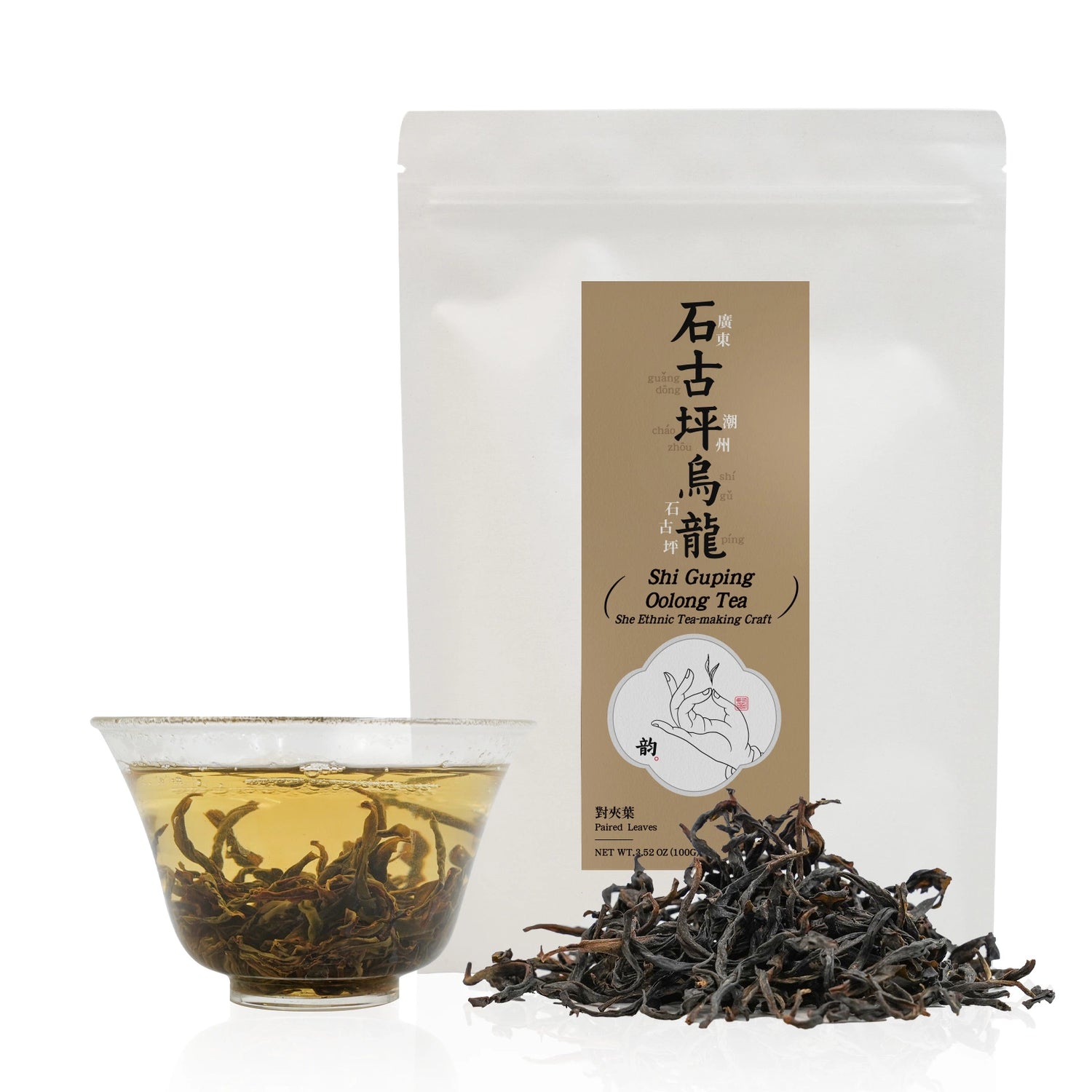

Premium Shiguping Oolong – Wild Phoenix Tea with Aged Pu’er Notes 50g 2025
$49.99 USD
Unit price perPremium Shiguping Oolong – Wild Phoenix Tea with Aged Pu’er Notes 50g 2025
$49.99 USD
Unit price perShiguping Oolong | The Wild Soul of Hakka Craft
A Rare Indigenous Cultivar with Ethnic Roots
Shiguping oolong is made from a local, indigenous tea cultivar traditionally cultivated by the She people, a minority ethnic group native to this part of Guangdong. Unlike the widely used Phoenix Shui Xian cultivar, this tea comes from a separate genetic lineage, maintained for generations in Shiguping Village.
The tea plants here are broadleaf shrubs, not arbor trees, and have adapted to volcanic soils and mountain mists. Their leaves are thicker and more polyphenol-rich than Phoenix cultivars, giving the tea a wilder, more mineral-driven taste—distinct from the fragrant and delicate Dancong varieties grown elsewhere in Fenghuang.
Flavor Note
A rare oolong with a mellow, grounding taste—low in aroma but high in sweetness and complexity. Though freshly made, it already shows a flavor style similar to a lightly aged raw pu-erh (around 2–3 years): soft, gently fruity. Unlike most Guangdong oolongs, this tea does not focus on floral fragrance, but offers a smooth, deep sweetness and strong aging potential.
Origin: Shiguping Village, Fenghuang Town, Chaozhou, Guangdong, China
Cultivar: Shiguping Group-Varietal / Bird Beak Tea
Elevation: 400–600m
Tree Age: ~50 years
Roast: Longan wood charcoal roast
Storage: Ages well over time (ideal shelf life 36+ months)
Origin & Terroir: “Low Mountains, High Tea”
Though its elevation is only 400–600m, Shiguping’s volcanic soil, dense fog (200 days/year), and dramatic day-night temperature swings create an exceptional microclimate. Tea trees here grow slowly, developing richer amino acids and aromatic compounds. This unique environment produces unexpected richness usually reserved for higher elevations.
A Wild Cultivar with a Fierce Personality
Shiguping oolong is made from a local group-varietal known as “Bird Beak Tea”, with thick leaves and 15% higher polyphenol content than Phoenix Shui Xian. Descended from Shui Xian but diverging through natural mutation, it expresses a wilder, more rugged flavor than cultivated Dancong types.
Hakka-Style Processing: Intense, Ancestral, Authentic
This tea follows a late-Qing dynasty Hakka method of:
-
Heavier tossing (三碰三晾) during oxidation
-
35–40% fermentation, close to northern Fujian-style oolongs
-
12+ hours charcoal roast using longan wood
The result? A complex aroma of roasted fruit and deep charcoal, with a flavor much more intense and aged than typical Phoenix teas.
Flavor: From Fire to Fruit to Sweetness
This tea delivers a three-stage taste experience:
-
First infusions: roasted, toasty notes like Wuyi rock teas
-
Mid infusions: tart-sweet flavor of preserved plums
-
Final steeps: mellow sugarcane sweetness
It’s bold, complex, and full of contrast—a tea that evolves in your cup and lingers on the mind.
For Aging, It’s in a League of Its Own
Historically exported from Shantou in the 19th century and used in Southeast Asian medicinal tea blends, Shiguping oolong is prized for its aging potential. Rich in polyphenols, it ages nearly twice as fast as Dancong, developing woody and medicinal notes over time.
“Three years becomes medicine. Ten years becomes treasure.”
A 2010 batch reviewed in 2023 showed clear transformation to herbal aroma, while most Dancong from the same year only showed mild honey notes.
Brewing Recommendations
Gongfu Style (Recommended):
-
5–6g tea per 100–150ml gaiwan
-
Water temp: 95–98°C / 203–208°F
-
Quick rinse, then steep 6–8+ times
-
Start at 10–15 sec per infusion and adjust to taste
Western-style Brewing:
-
2g per 100ml water
-
95°C (203°F), 2–3 minutes steep
-
Re-steep up to 2–3 times
Roasted Aroma Tie Guan Yin (Traditional Charcoal-Roasted)
This is Tie Guan Yin the traditional way — medium oxidation, slow charcoal roasting, and a deeper, toasty complexity. It’s the flavor locals grew up with: rich, warm, and satisfying. The roast brings out a rounder body and layers of baked fruit, nutty notes, and subtle floral undertones.
Our roasted Tie Guan Yin comes from the same Longjuan village in Anxi. It balances the signature Tie Guan Yin floral aroma with a smooth, roasted sweetness — a perfect “next step” for those who enjoy depth and complexity in their oolongs. Great hot, and surprisingly pleasant as a cold brew too.
-
Origin: Longjuan Village, Longjuan Township, Anxi County, Fujian, China
-
Tea Maker: Wang Zhiyuan
-
Harvest: 2025
-
Shelf Life: 36 months
-
Cultivar: Hongxin Waiweitao Tieguanyin (the original and most authentic Tieguanyin variety)
-
Elevation: 800–1000 meters
Huang Jin Gui
Huang Jin Gui, whose name literally means “Golden Osmanthus”, is one of the earliest high-fragrance oolongs from Anxi, named after its osmanthus-like floral aroma. It’s made with an early-budding cultivar that produces a bright, golden liquor and a clean, refreshing floral taste.
Our tea is sourced from Gupo Keng (800m elevation), part of Anxi’s famed “Three Pits Two Gullies” tea region. Thanks to its unique microclimate and rich soils, this tea has a fragrant, elegant profile with notes of osmanthus, gardenia, and ripe pear. Light, sweet, and crisp — it’s a perfect everyday floral oolong.
-
Origin: Gupo Keng, Houge Village, Xiping Town, Anxi County, Fujian, China
-
Tea Maker: Chen Jiangzhi
-
Harvest: Autumn 2025
-
Shelf Life: 36 months
-
Cultivar: Huang Jin Gui
-
Elevation: 500–700 meters
Yongchun Fo Shou
Yongchun Fo Shou is a rare oolong from the high mountains of Yongchun County, Fujian. Its name comes from the leaf shape—resembling the Buddha’s hand citrus—and its bright, fruity aroma.
Legend says Buddhist monks in the 17th century grafted a tea tree onto a citron plant, creating this uniquely fragrant cultivar. Grown between 600–900 meters in Wuxi village near the protected origin region, this tea reflects both rich history and high mountain character.
It’s known for its distinctive citrus and pear notes, rounded out by a creamy, slightly floral finish. The taste is smooth and layered, with a lingering sweetness often described as the “Fo Shou charm.” Whether brewed hot or cold, this tea is a peaceful, full-bodied choice for those who enjoy fruity, elegant oolongs.
-
Origin: Wuxi Village, Wufeng Town, Yongchun County, Quanzhou, Fujian, China
-
Tea Maker: Xu Yongyuan
-
Harvest: 2025
-
Shelf Life: 36 months
-
Cultivar: Yongchun Fo Shou
-
Elevation: 500 meters
Baiya Qilan
Baiya Qilan is a rare oolong variety native to Pinghe County, Fujian. First discovered during the Qing Dynasty, it’s named for its pale buds and strong orchid fragrance. It’s one of Fujian’s top five oolongs, beloved for its unique blend of floral aroma and natural honeyed sweetness.
Our tea is harvested from the high-elevation gardens of Daqin Mountain (around 1000 meters), where misty skies and selenium-rich soil help develop its rich aroma. Each cup offers bright orchid and pomelo notes, with a soft texture and a refreshing, sweet finish.
This is a refined, elegant oolong that appeals to both floral tea lovers and those looking for something rare and naturally sweet.
-
Origin: Daqin Mountain, Qiling Township, Pinghe County, Zhangzhou, Fujian, China
-
Tea Maker: Cai Xiaohong
-
Harvest: Autumn 2024
-
Shelf Life: 36 months
-
Cultivar: Qilan
-
Elevation: 800–1000 meters
Daye Oolong
Daye Oolong, or "Big Leaf Oolong," is a lesser-known but classic cultivar from Anxi’s Changqing region. It has been grown for centuries, valued for its bold leaves, rich mouthfeel, and signature toasted aroma.
Our tea comes from Shanping village, considered the origin area for this cultivar, with tea gardens around 800 meters elevation. The high mountain environment and older tea trees bring out deeper notes of caramel, wood, and dried fruit. It’s naturally smooth and mellow, with a clean, lingering finish.
Daye Oolong is especially well-suited for those who like richer, deeper teas that are still easy to drink—perfect for both hot and cold brewing.
-
Origin: Shanping Village, Changqing Town, Anxi County, Fujian, China
-
Elevation: 800 meters
-
Tea Maker: Chen Jiangzhi
-
Harvest: 2025
-
Shelf Life: 36 months
-
Cultivar: Daye Oolong (Large-Leaf Oolong)
-
Tree Age: 40 years
Meizhan (Plum Fragrance Oolong)
Meizhan is a traditional oolong variety native to Anxi, first discovered in the early 19th century. It’s named for its signature plum blossom aroma and complex floral-fruity character. The leaves are thick and crisp, requiring gentle oxidation and careful handling during processing to preserve its elegant fragrance.
Our Meizhan comes from Chishui village in Xiping, Anxi—grown at 900 meters in a cool, misty climate ideal for this cultivar. The tea is traditionally medium-roasted, offering a perfect balance of fire and fragrance: notes of plum, orchid, and a touch of woodiness, with a soft, full-bodied finish.
A great choice for tea lovers who enjoy both floral and fruity complexity with a warming roasted undertone.
-
Origin: Chishui Village, Xiping Town, Anxi County, Fujian, China
-
Elevation: 900 meters
-
Tea Maker: Chen Jiangzhi
-
Harvest: 2025
-
Shelf Life: 36 months
-
Cultivar: Meizhan
-
Tree Age: 50 years
Wuyi Qizhong, locally called "Cai Cha," refer to the indigenous tea tree varieties naturally growing in Wuyi Mountain. They are a sexually propagated group of plants and among the most ancient varieties in Wuyi. Famous Wuyi oolong teas such as Bai Jiguan and Tie Luo Han were selected from these rare varieties, making them the "gene pool" and a "living fossil" of Wuyi Rock Tea.
Due to the significant individual differences among these plants, the brewed tea presents diverse aromas, ranging from floral notes (orchid), fruity notes (honey peach, snow pear), woody notes, to creamy notes; older bushes may even carry a wild character.
This tea belongs to the Ban Yan (Half-Rock) category. It opens with a floral fragrance, develops fruity aromas, and carries a unique mineral character known as "Yan Yun" (rock rhyme). The taste is rich and full-bodied, with a smooth, lingering sweetness, pronounced throat finish, and strong durability for multiple infusions.
Origin: Jingshui Village, Xingcun Town, Wuyishan City, Fujian Province, China
Tea Region: Ban Yan (半岩)
Elevation: 400–600 m
Soil Type: Yellow Soil
Tea Variety: Wuyi Mountain indigenous group varieties
Tea Master: Chen Hui
Harvest Season: November 2024
Shelf Life: 36 months
Brewing Guidelines
Water Temp: 100°C (212°F)
Brewware: Gaiwan, Yixing Clay Teapot
Tea-to-Water Ratio: 5-7g per 100ml
1–3 infusions: 8-15 sec
Later infusions: Add 5–10 sec
Total brews: 7-8 times
Dwarf Oolong, also known as Small Leaf Oolong or Soft Branch Oolong, originates from Dongfeng Town in Jian'ou City. It is the ancestral tea tree variety of the Beiyuan Tribute Tea, with a cultivation history tracing back to the Song Dynasty. During the Qing Dynasty, it was introduced to Taiwan and developed into the famous Qingxin Oolong and Dong Ding Oolong. Its unique flavor continues to be highly appreciated by local tea connoisseurs.
This tea comes from the original Dwarf Oolong plantations in Dongfeng Town. It offers a delicate, lingering aroma with distinctive notes of honey peach or osmanthus. The fragrance is long-lasting, the taste rich, mellow, and refreshing, with a clear golden liquor. Even after multiple infusions, both the aroma and color remain stable.
Origin:
Dongfeng Village, Dongfeng Town, Jian'ou City, Fujian Province, China
Elevation:
500–600 m
Soil Type:
Yellow Soil
Tea Variety:
Dwarf Oolong
Tea Master:
Ye Jiansheng
Harvest Season:
November 2024
Shelf Life:
36 months
Brewing Guidelines
Water Temp: 100°C (212°F)
Brewware: Gaiwan, Yixing Clay Teapot
Tea-to-Water Ratio: 5-7g per 100ml
1–3 infusions: 8-15 sec
Later infusions: Add 5–10 sec
Total brews: 8-10 times
Ruixiang 305, developed by the Fujian Academy of Agricultural Sciences in 2003 from Huangdan hybrids, is one of the representative high-aroma varieties of modern Wuyi Rock Tea. It is commonly used in blends with Da Hong Pao and Wuyi Rougui to enhance aroma complexity and flavor depth.
This Ruixiang tea is processed using traditional Wuyi Rock Tea techniques. The natural gardenia-like aroma of the tea leaves is perfectly balanced with the roasted notes from charcoal firing. The fragrance is rich and long-lasting, with a pronounced cup-bottom aroma. The taste is mellow and smooth, with a lingering sweetness and layered complexity. Compared to Wuyi Rougui, it offers a fresher, more refreshing mouthfeel.
Origin:
Jingshui Village, Xingcun Town, Wuyishan City, Fujian Province, China
Tea Region:
Ban Yan
Tea Variety:
Ruixiang 305
Tea Master:
Chen Hui
Harvest Season:
November 2024
Shelf Life:
36 months
Brewing Guidelines
Water Temp: 100°C (212°F)
Brewware: Gaiwan, Yixing Clay Teapot
Tea-to-Water Ratio: 5-7g per 100ml
1–3 infusions: 8-15 sec
Later infusions: Add 5–10 sec
Total brews: 10 times
Da Hong Pao is the most representative tea among Wuyi Rock Teas. Due to its high reputation, many people even refer to all Wuyi Rock Teas as Da Hong Pao. The original mother trees of Da Hong Pao are located at Jiulongke in Wuyi Mountain, and they are now strictly protected from harvesting. To recreate the unique flavor of Da Hong Pao, high-quality Wuyi Rock Teas such as Rou Gui, Shui Xian, along with pure-bred Da Hong Pao, are blended to achieve an outstanding balance of aroma, liquor color, and taste, making it a favorite among tea lovers both in China and abroad.
This Da Hong Pao is blended with mid-mountain (Ban Yan) Wuyi Rock Tea materials in a specific ratio. It has a distinctive mineral sensation (known as Yan Yun, the “rock rhyme”), with a hint of roasted fragrance. The taste is mellow and full-bodied, with every flavor harmoniously integrated. It highlights the classic character of “rock bone and floral fragrance,” offering rich layers—an excellent choice for further exploring the world of Wuyi Rock Tea.
Origin: Jingshui Village, Xingcun Town, Wuyishan City, Fujian Province, China
Altitude: 400–600 m (Ban Yan, mid-mountain)
Soil: Gravel soil
Producer: Chen Hui
Harvest Time: November 2024
Storage Life: 36 months
Brewing Guidelines
Water Temp: 100°C (212°F)
Brewware: Gaiwan, Yixing Clay Teapot
Tea-to-Water Ratio: 5-7g per 100ml
1–3 infusions: 8-15 sec
Later infusions: Add 5–10 sec
Total brews: 10-12 times
Recently viewed products
Chat with fellow tea lovers, ask questions, and share your tea moments.






